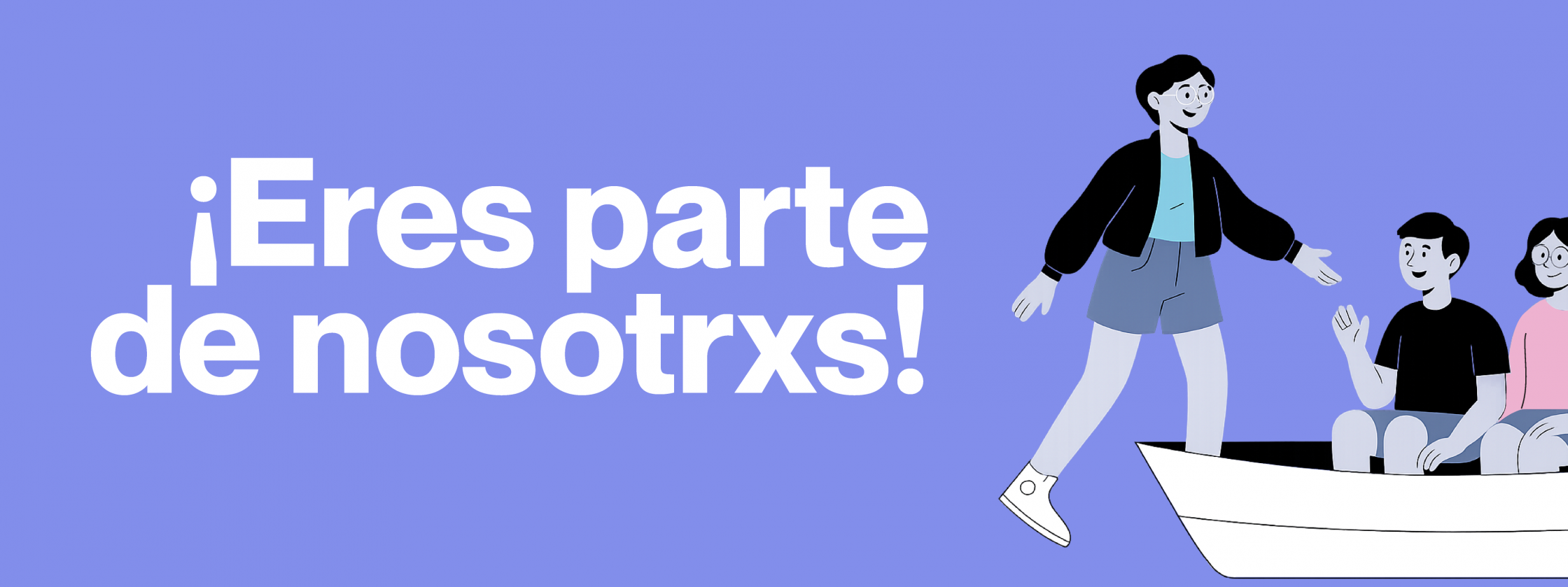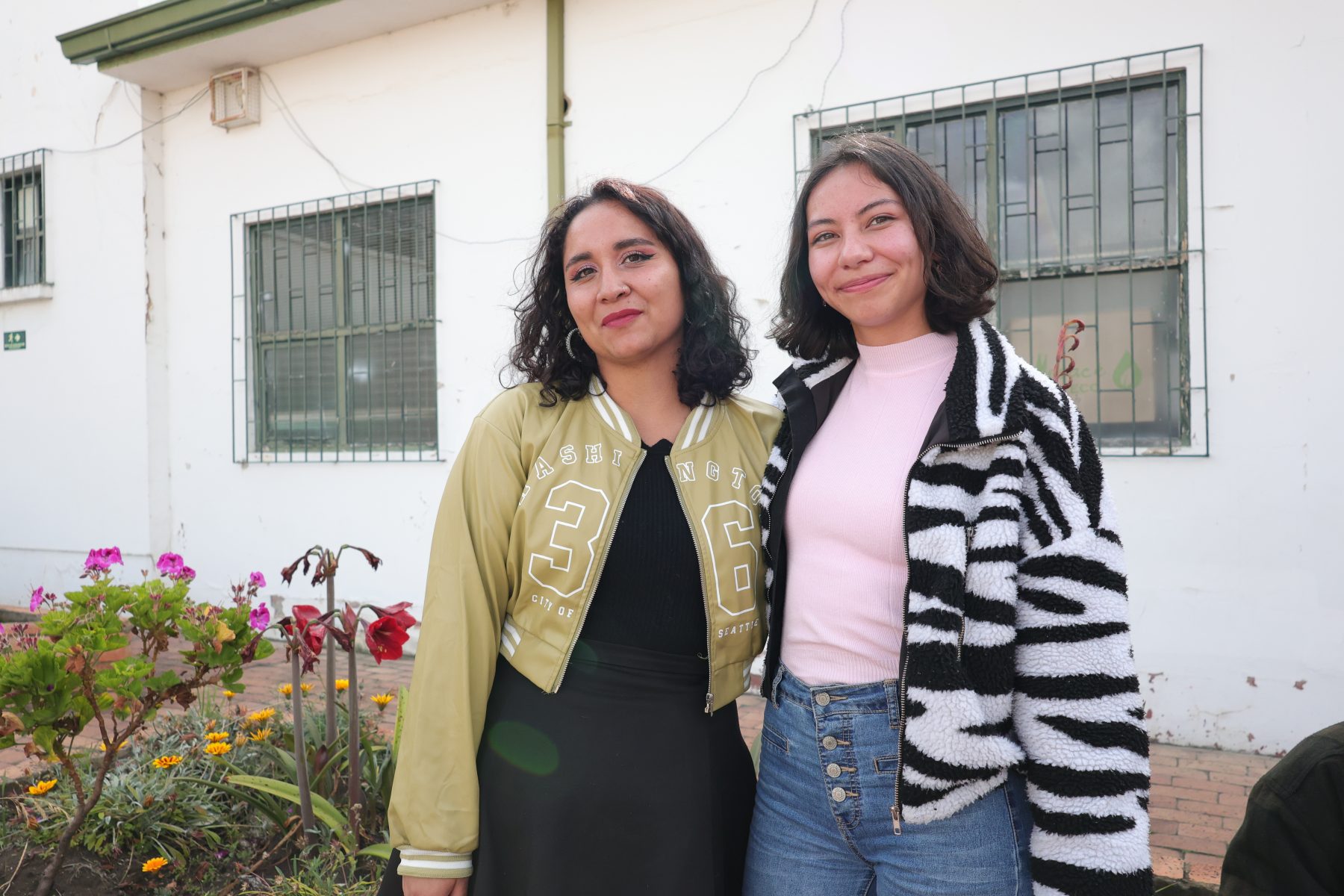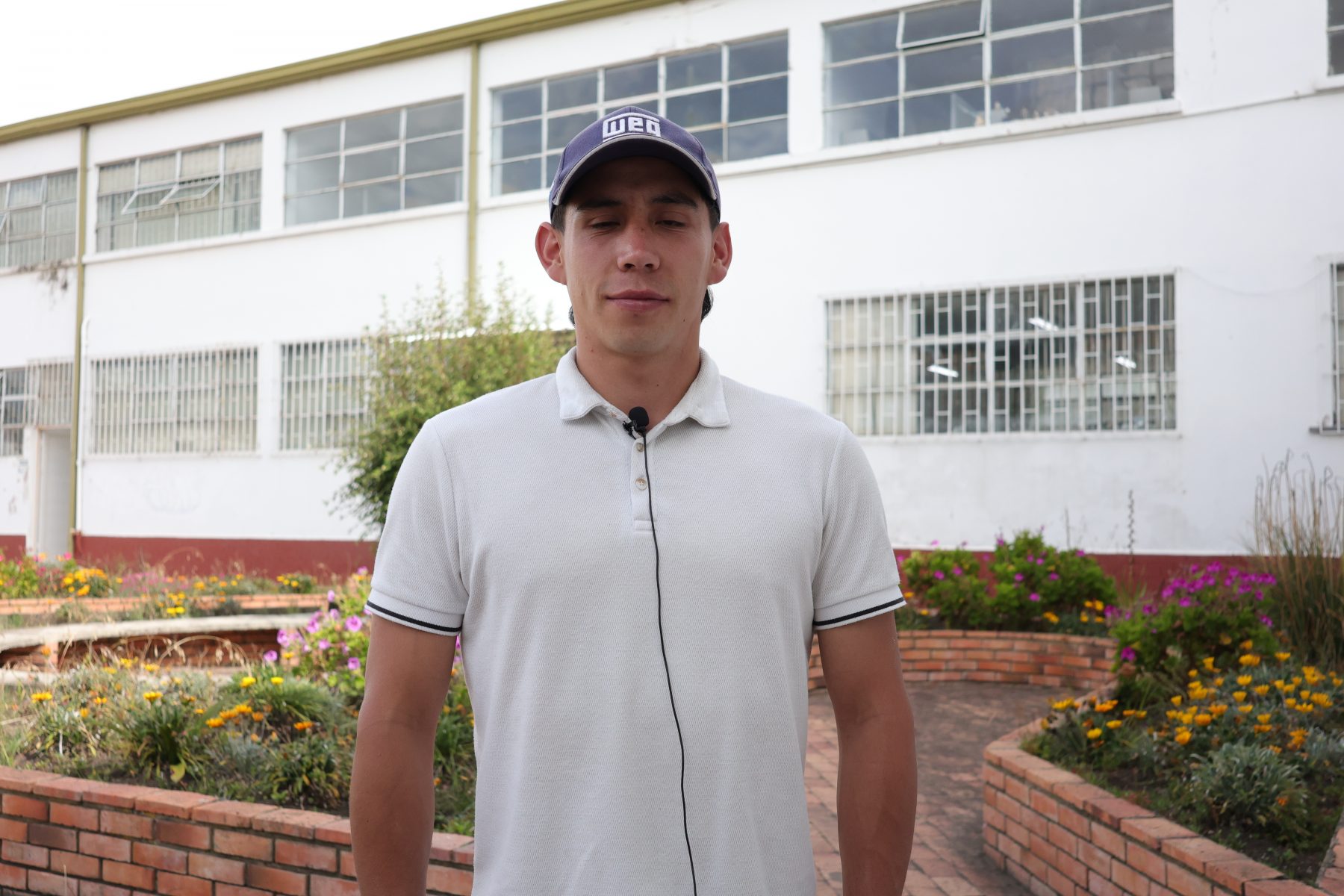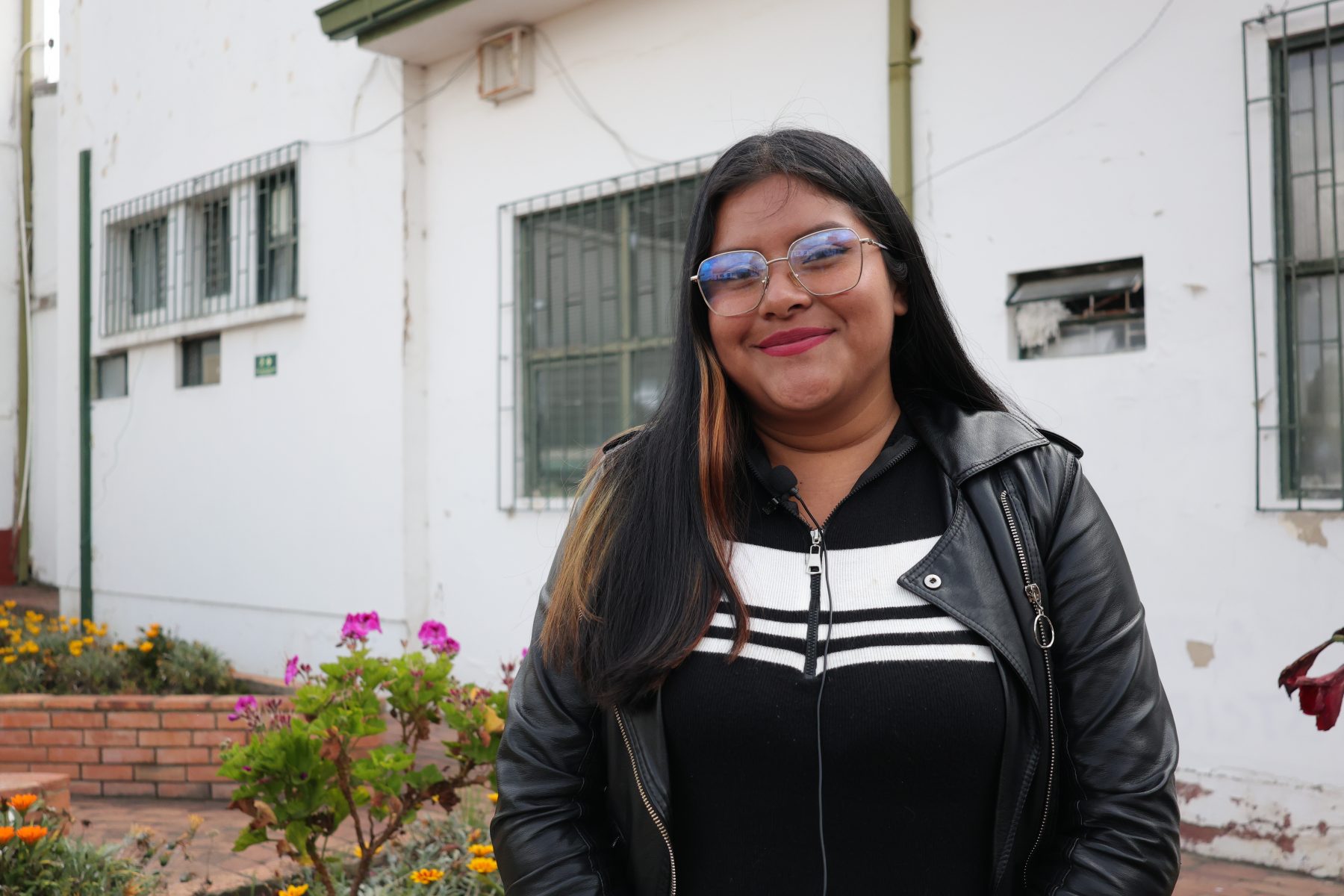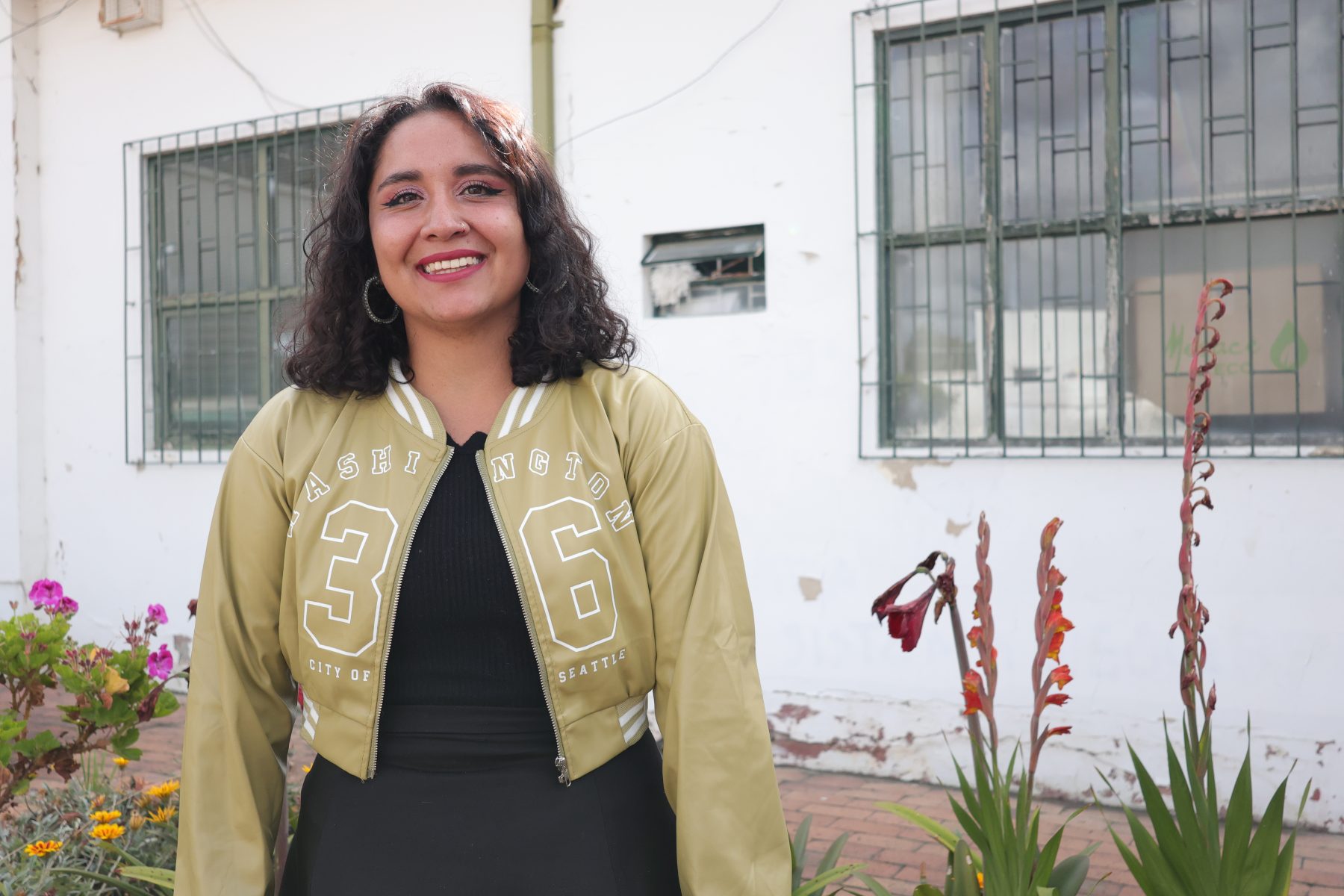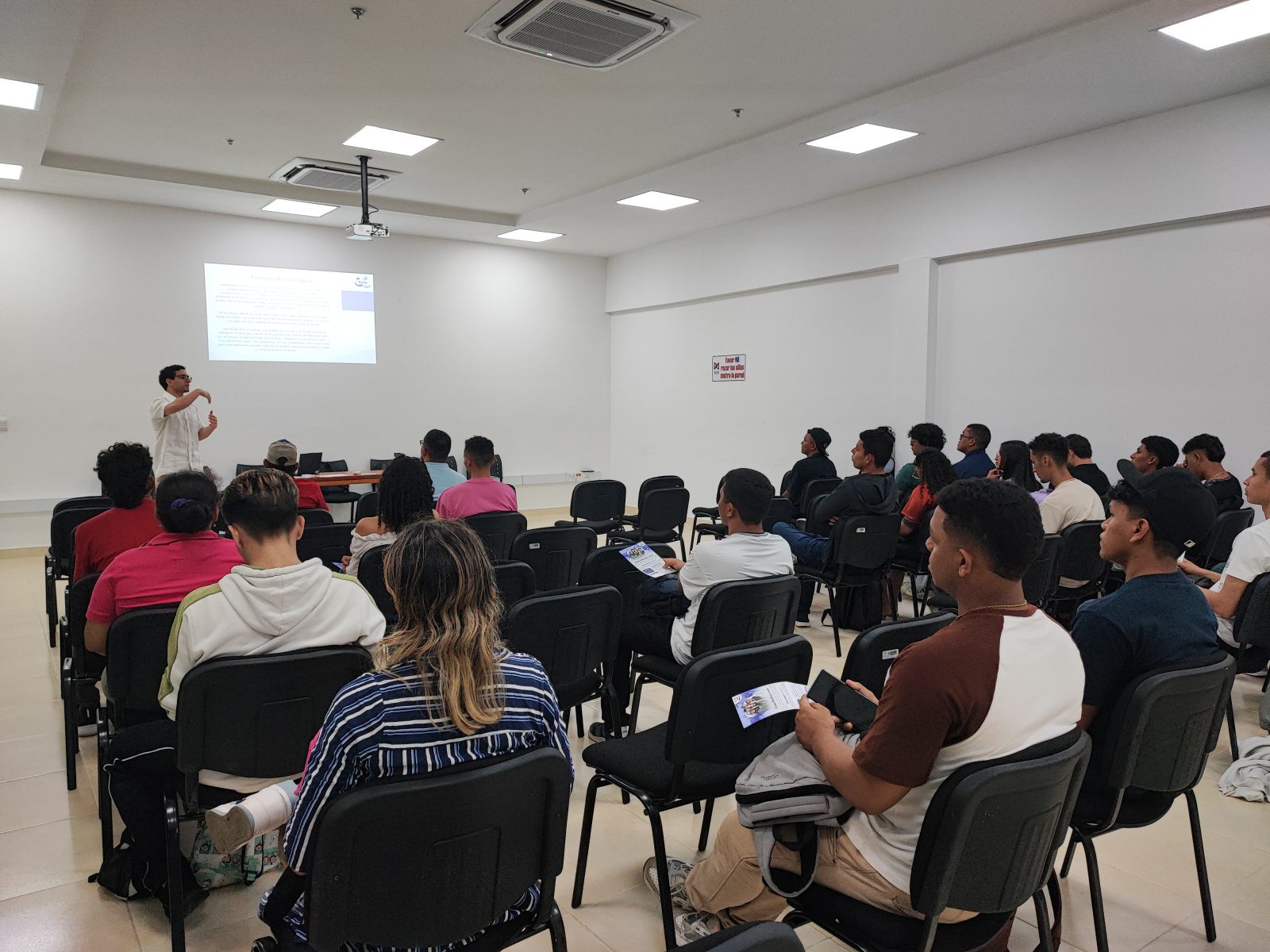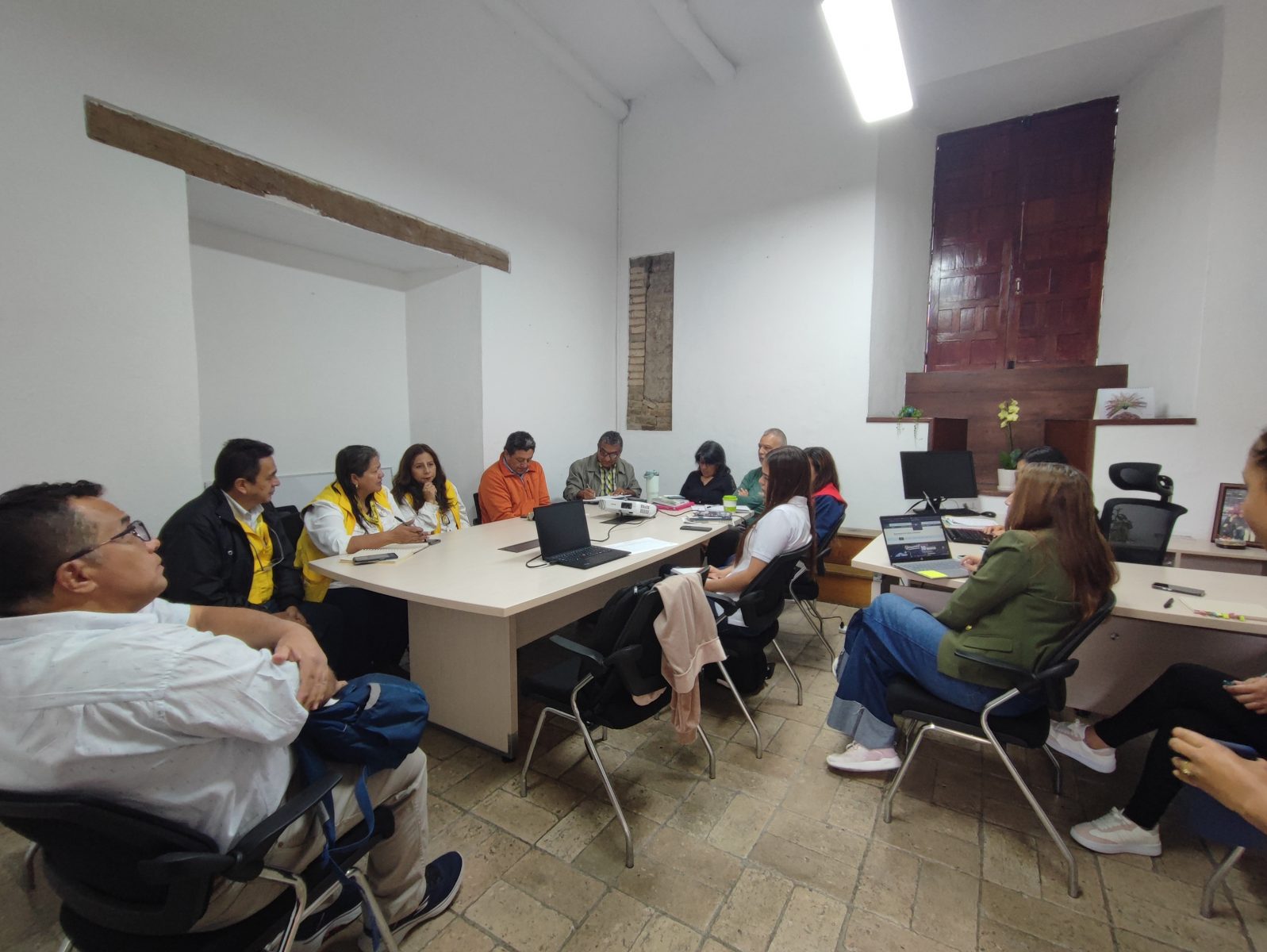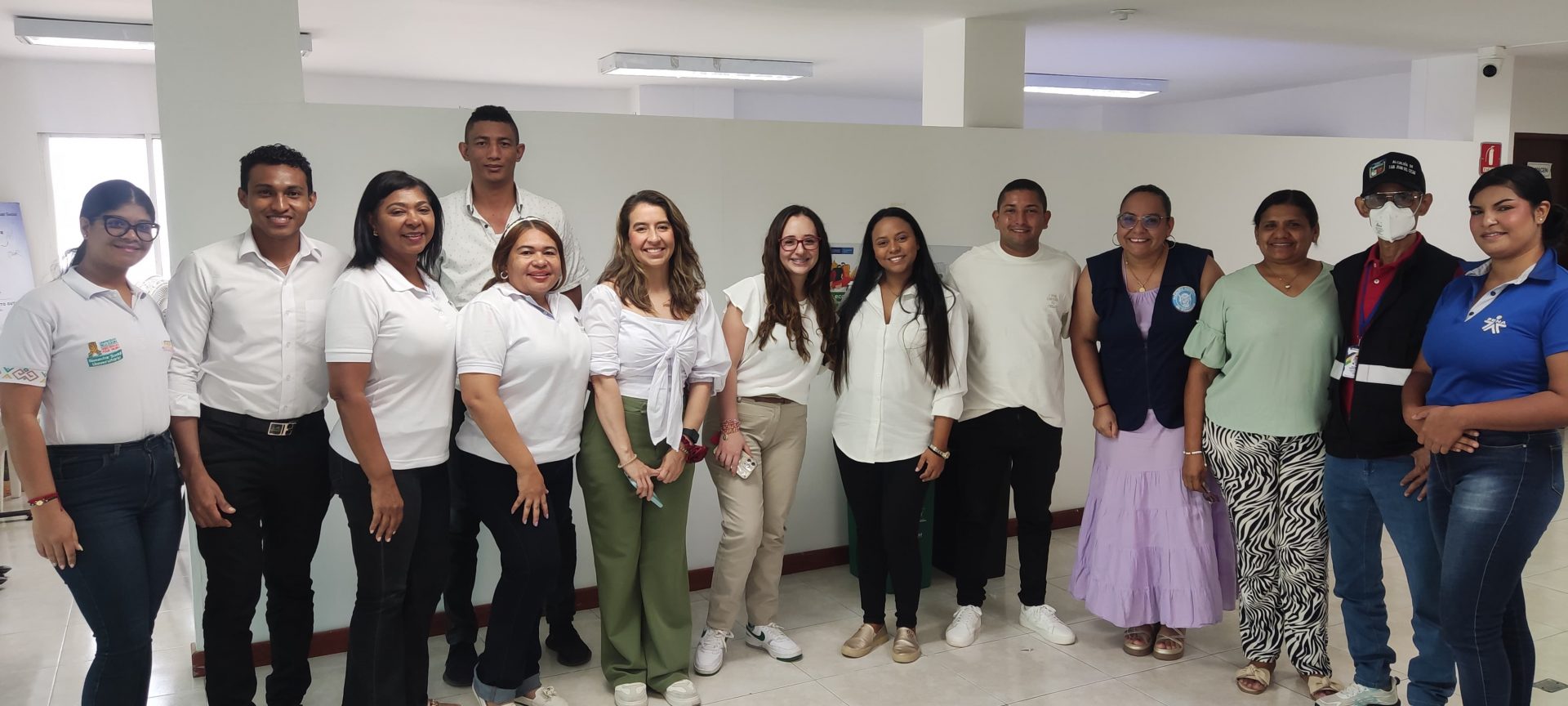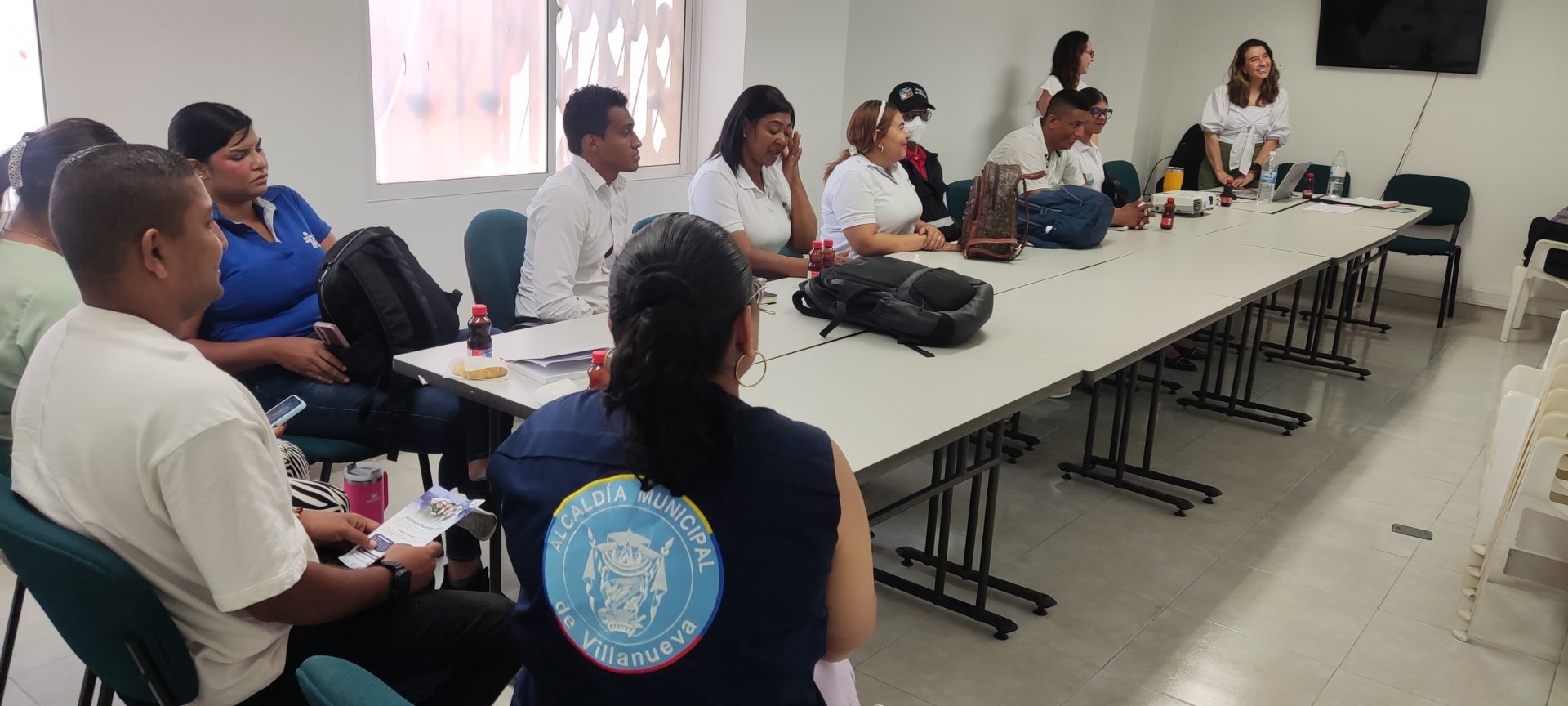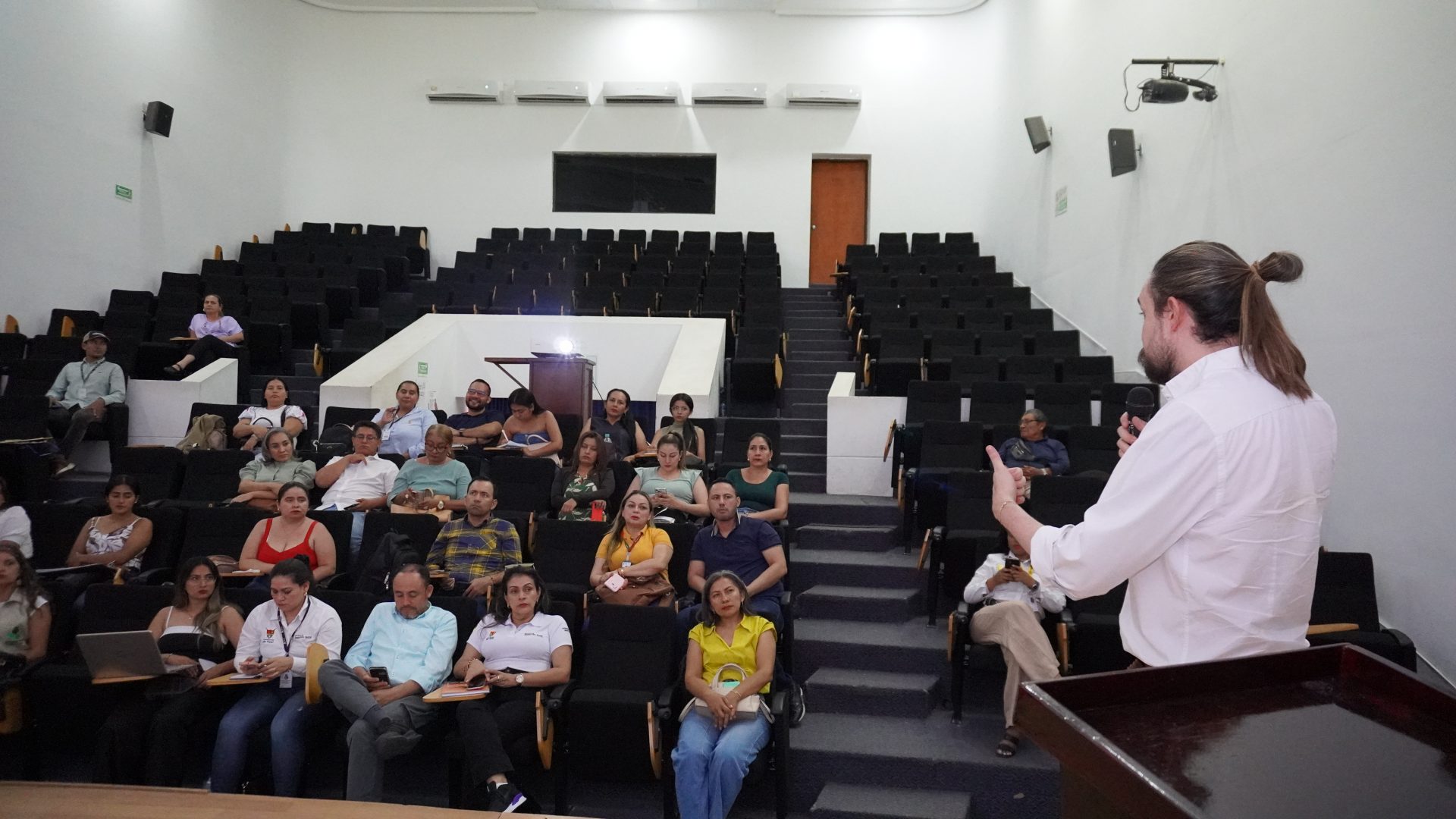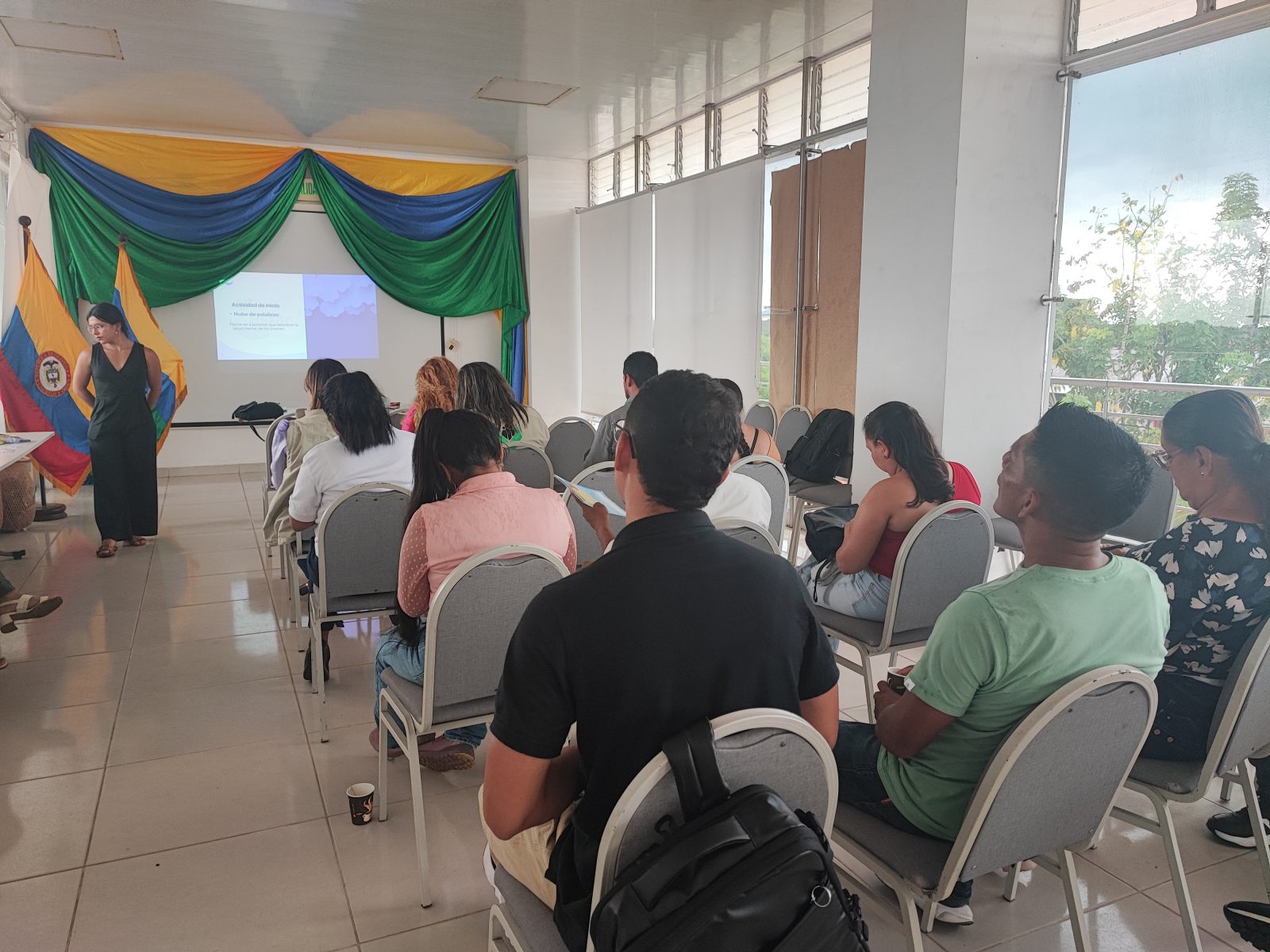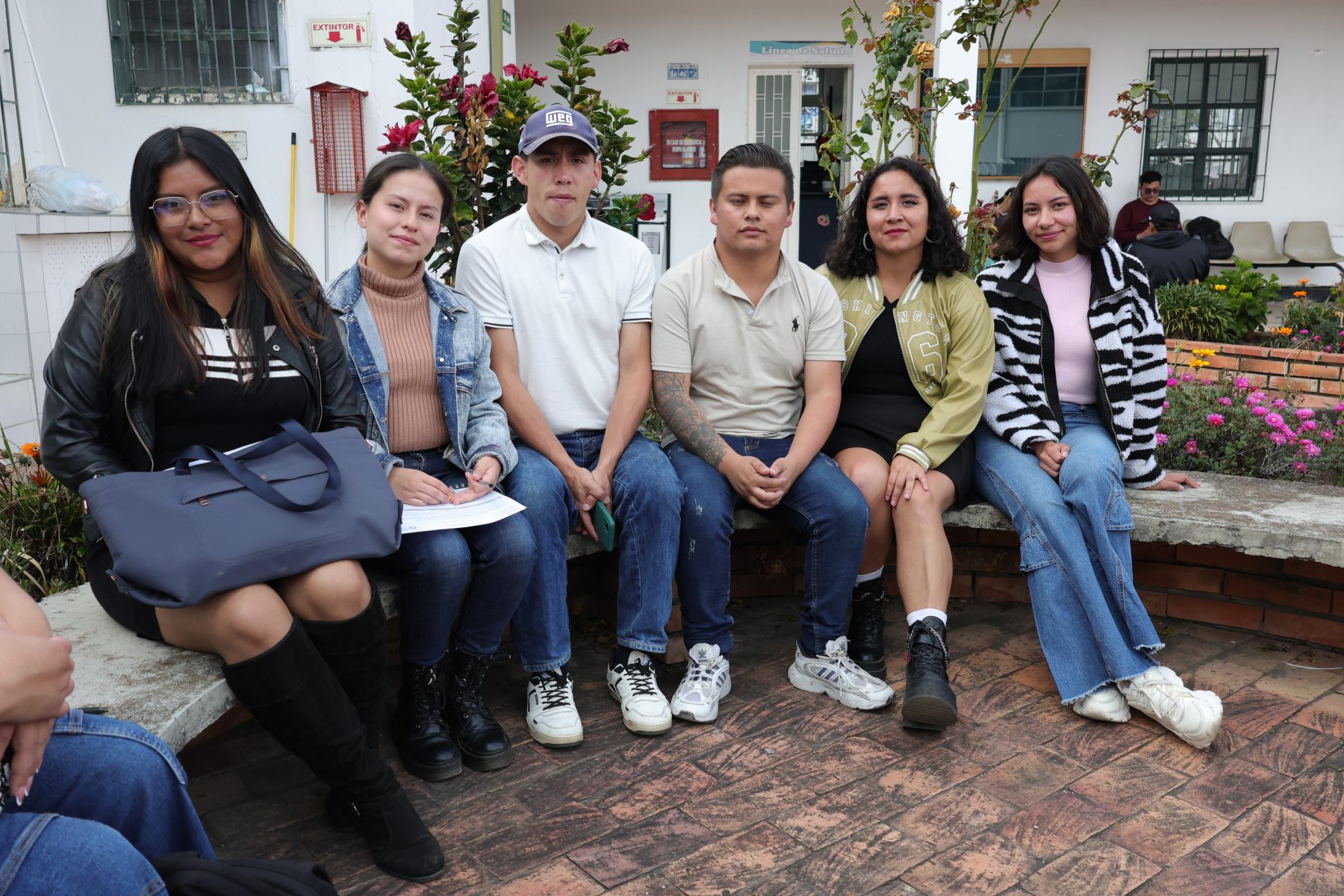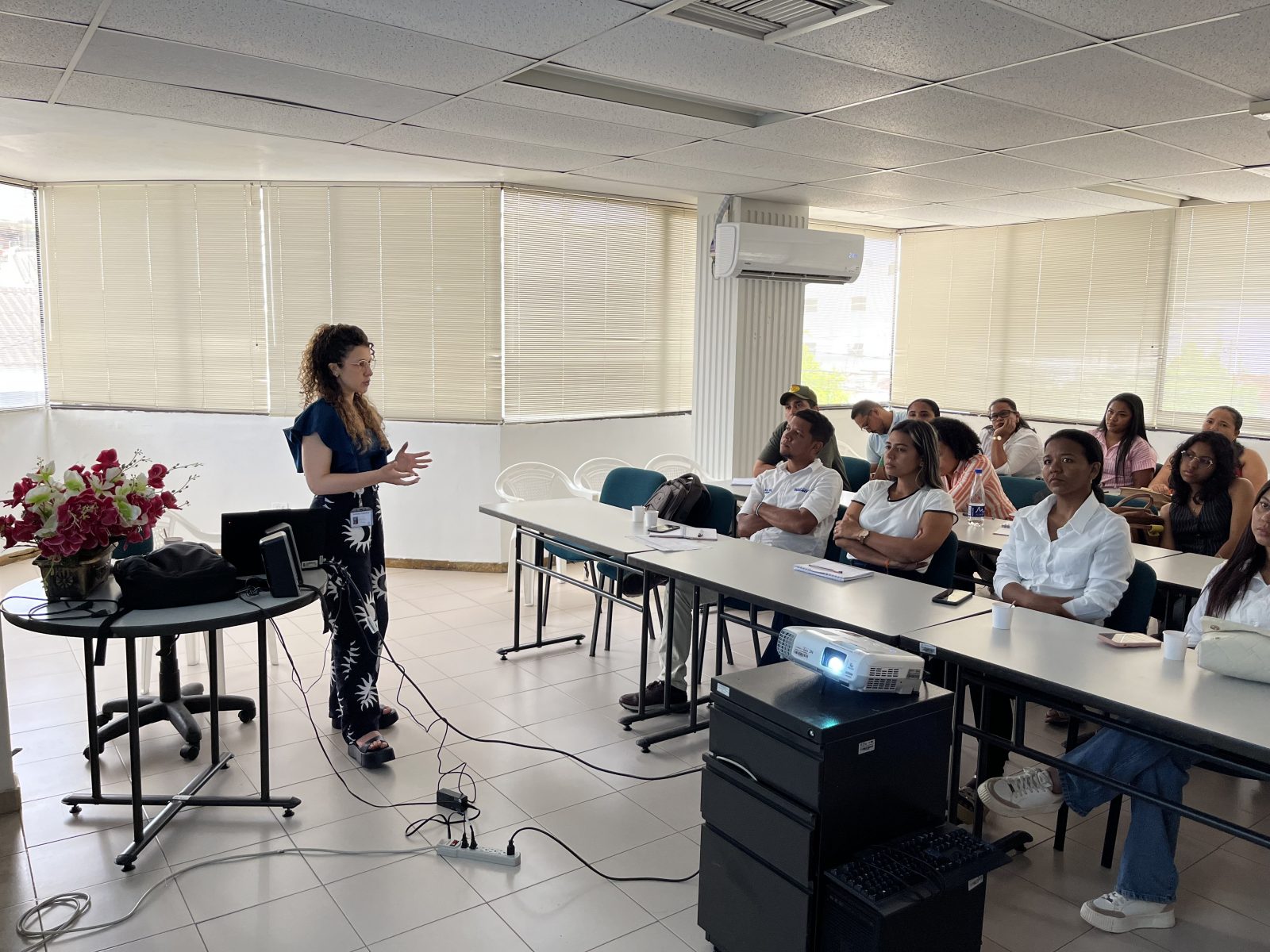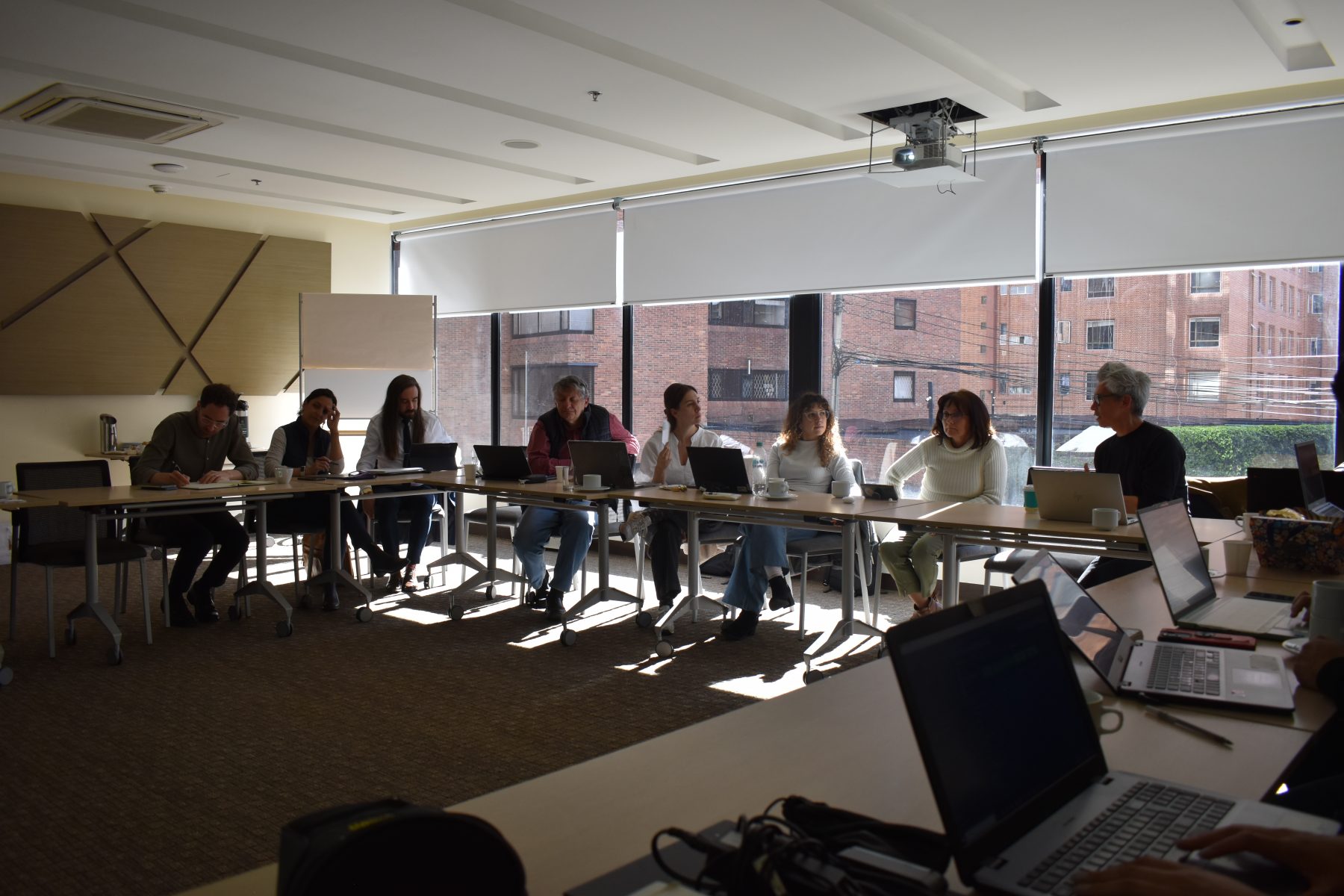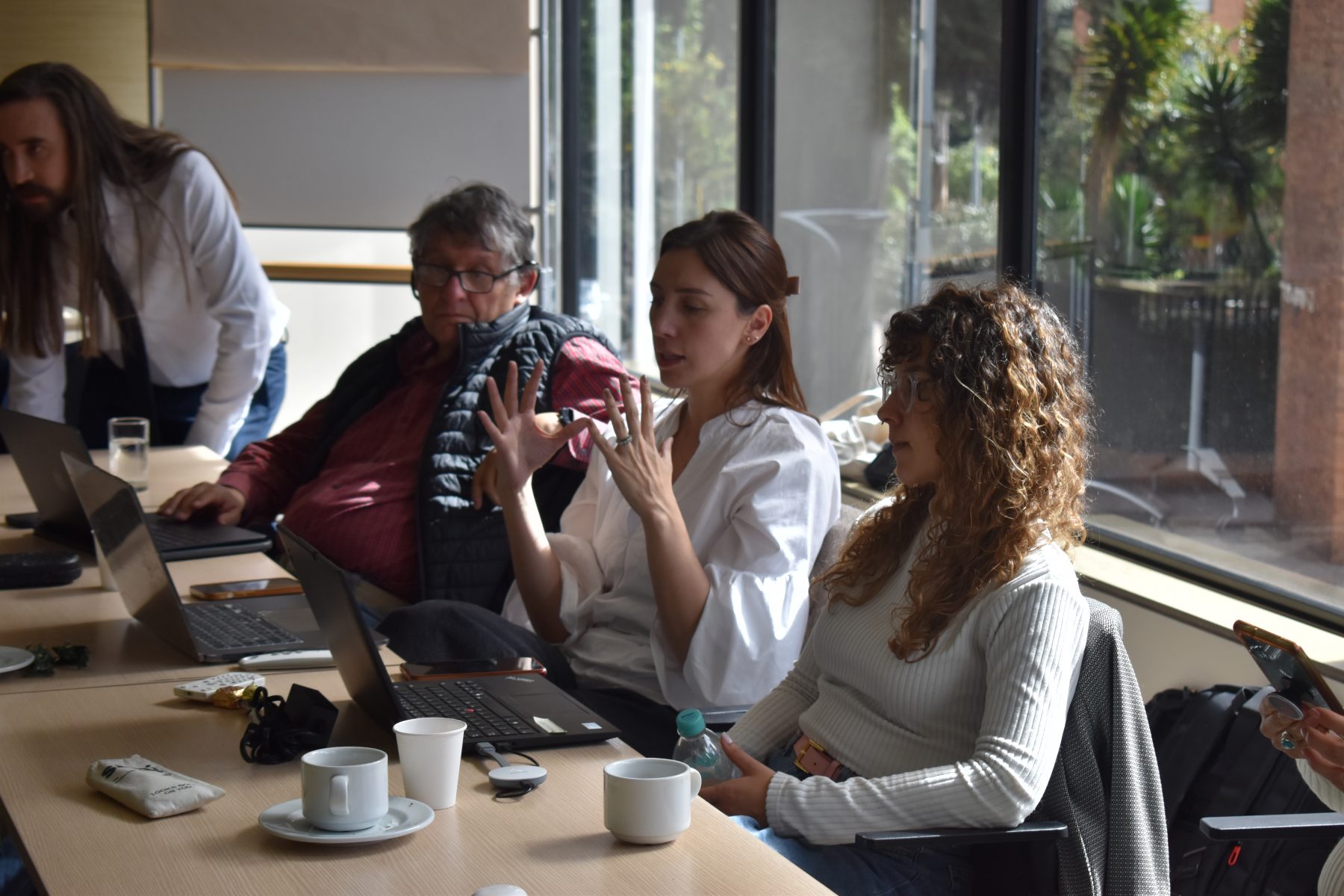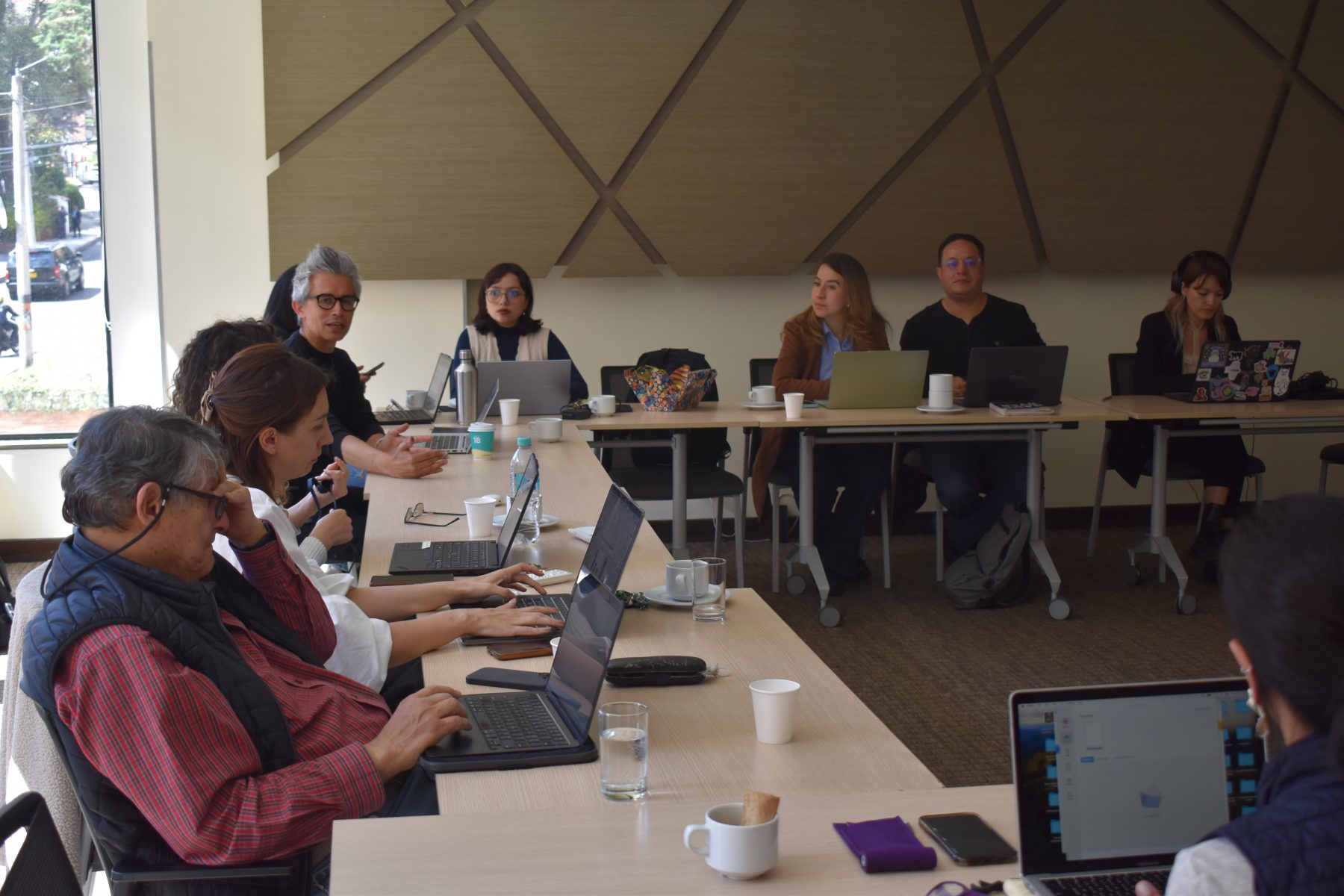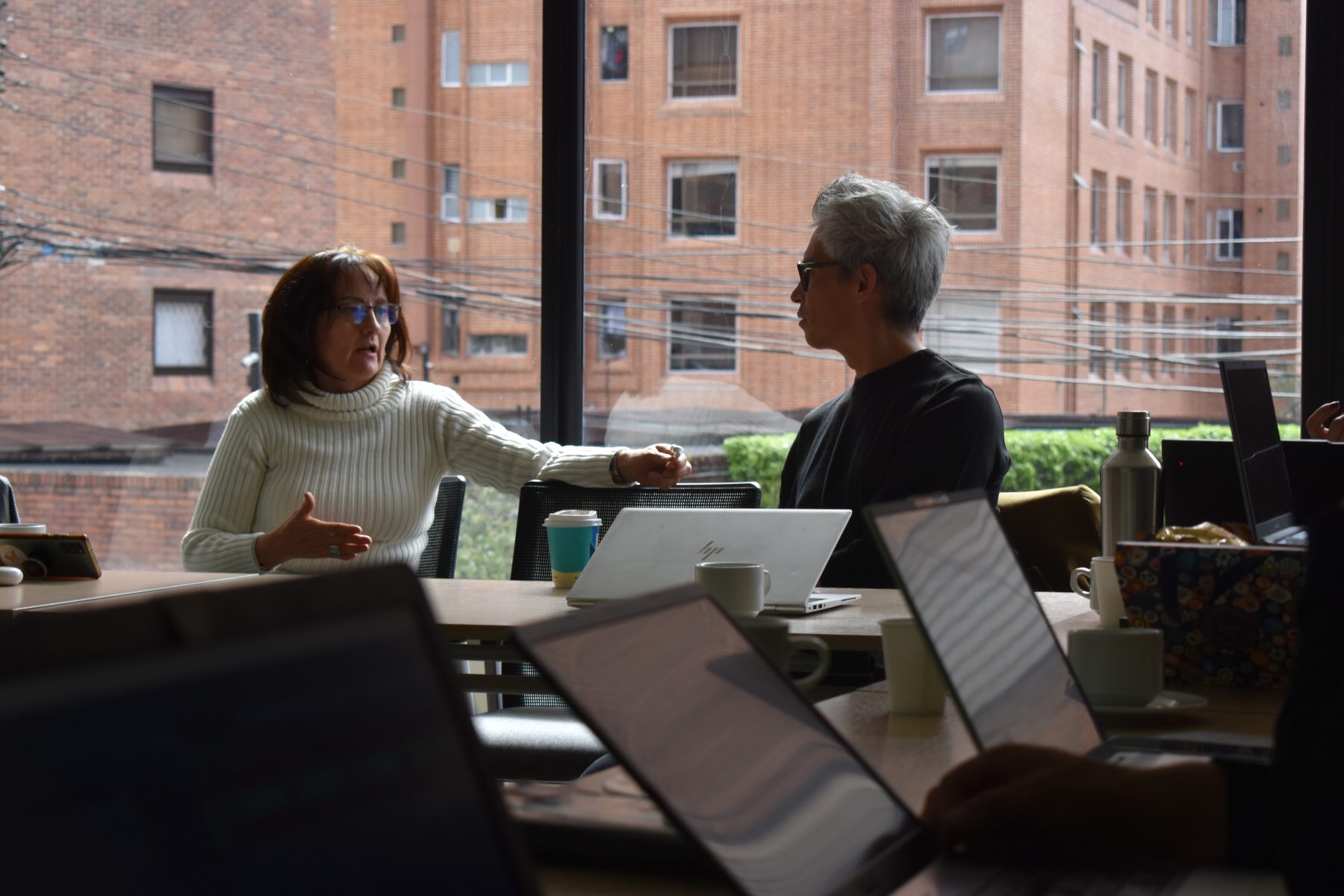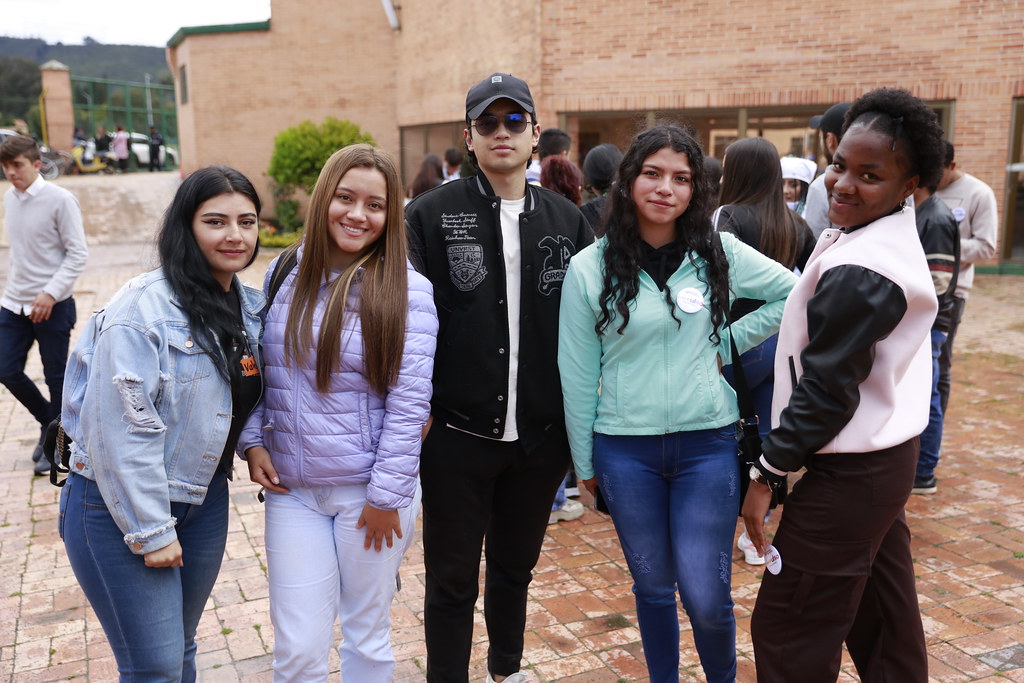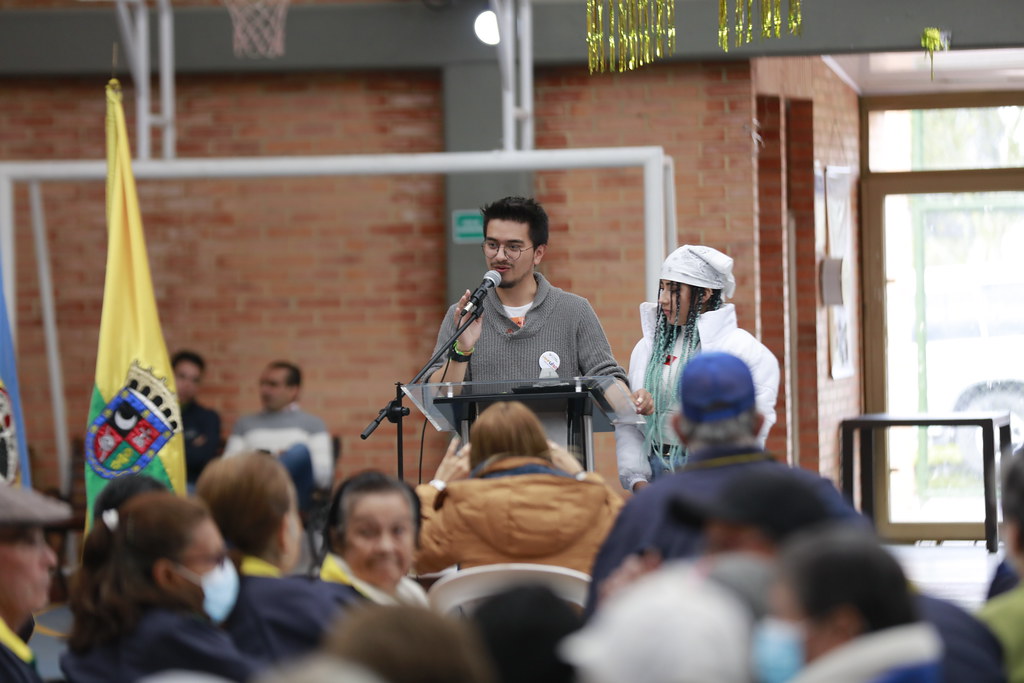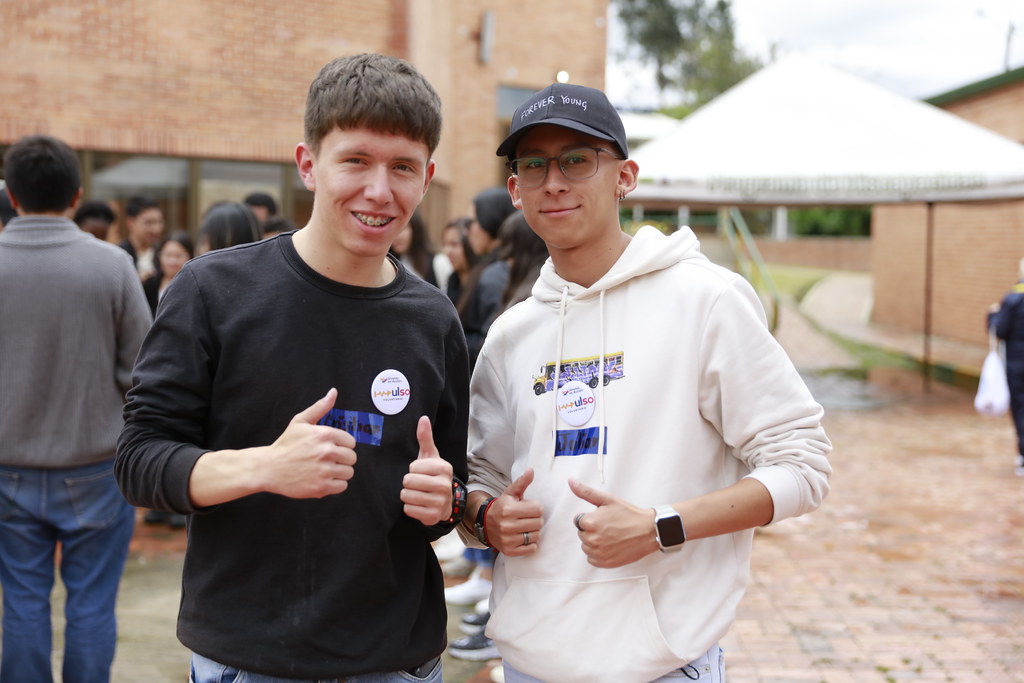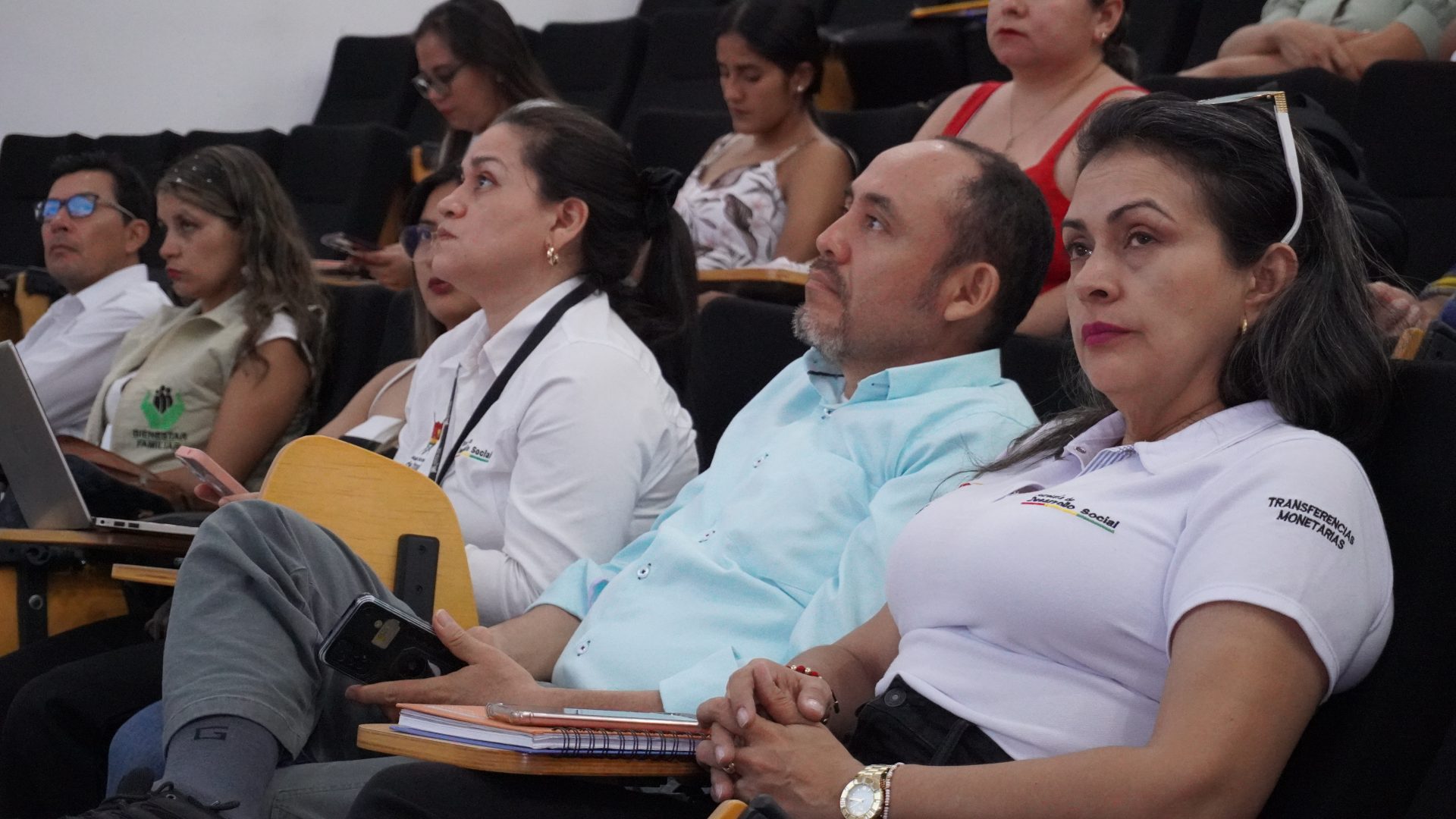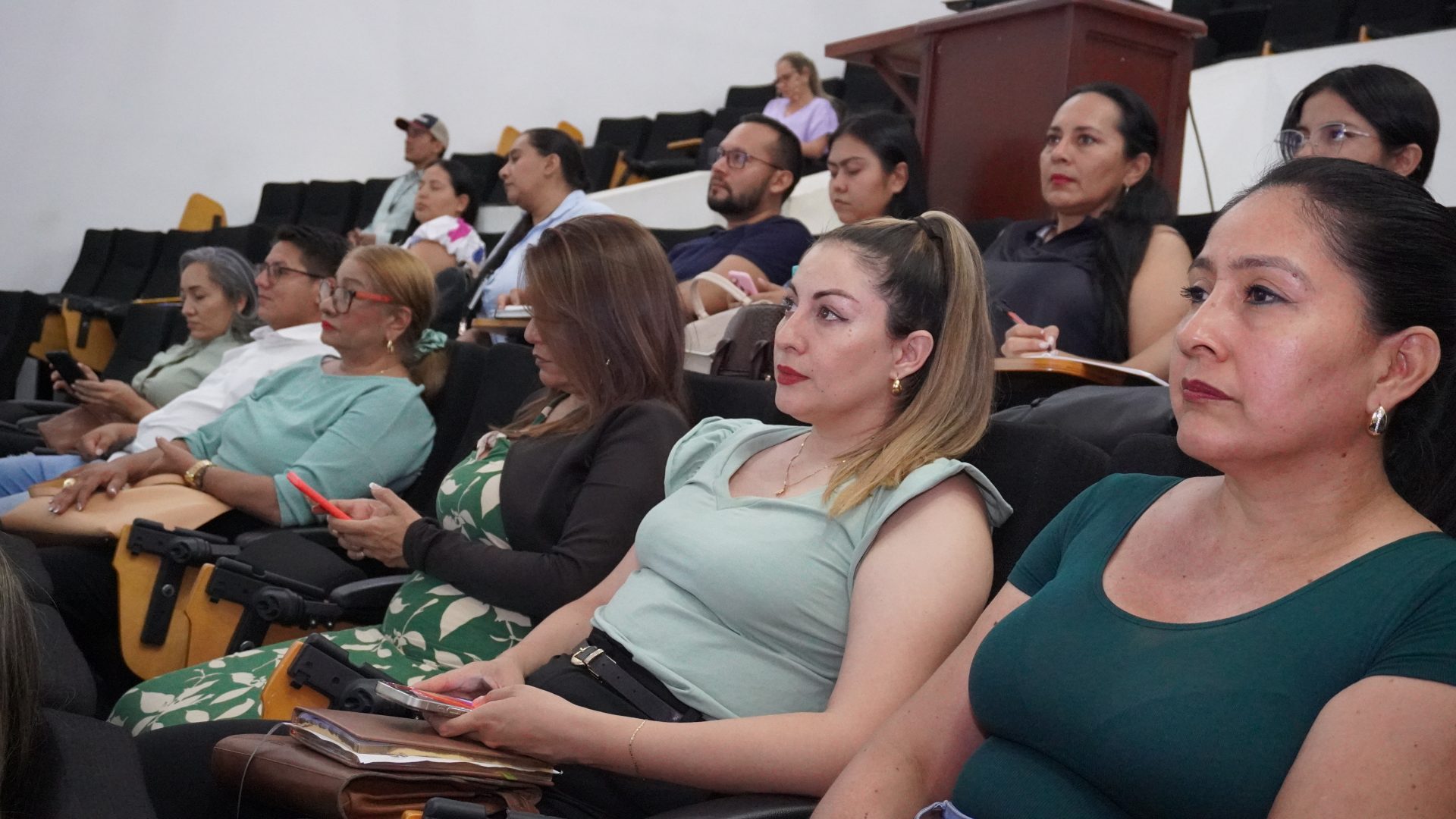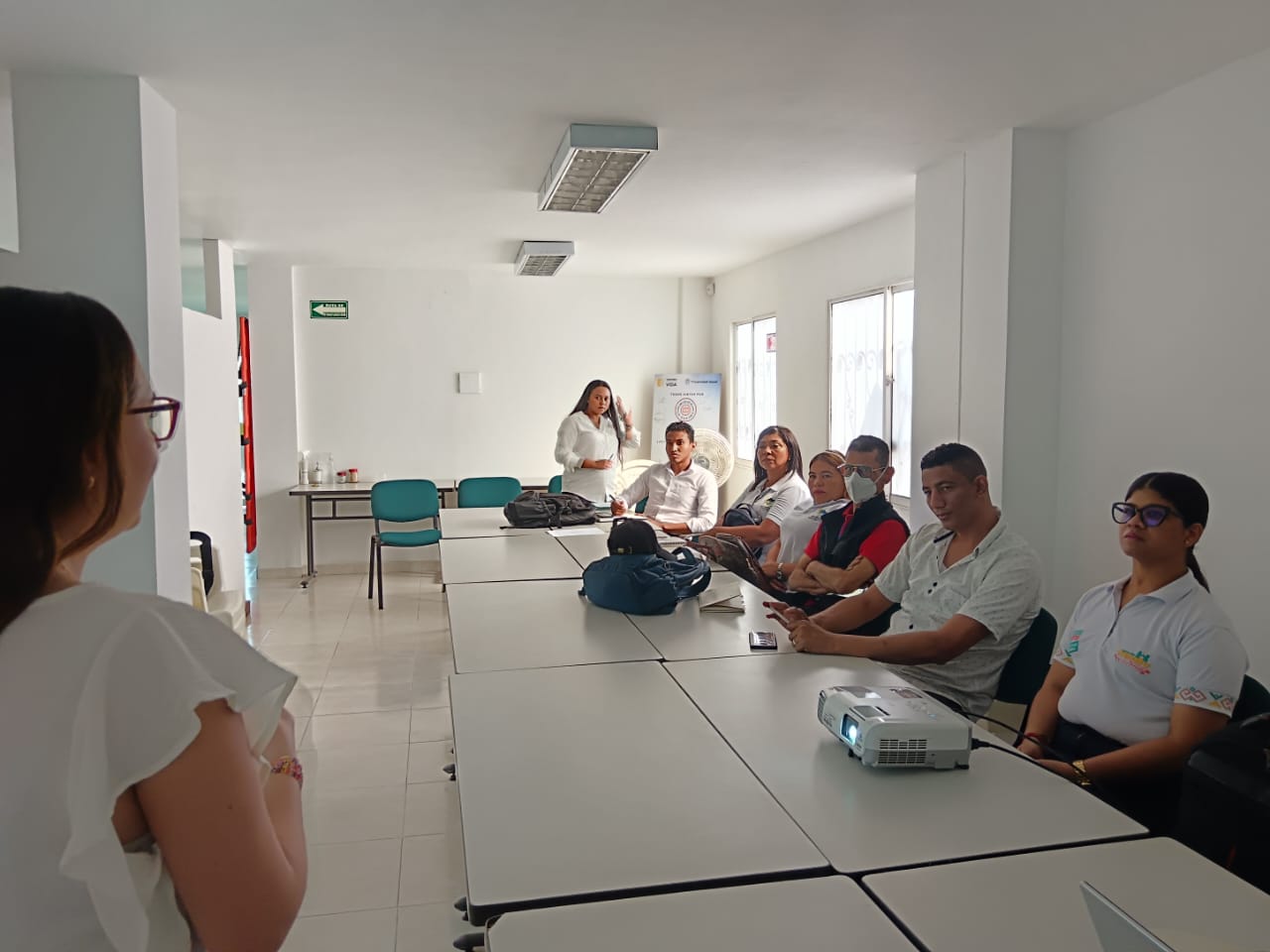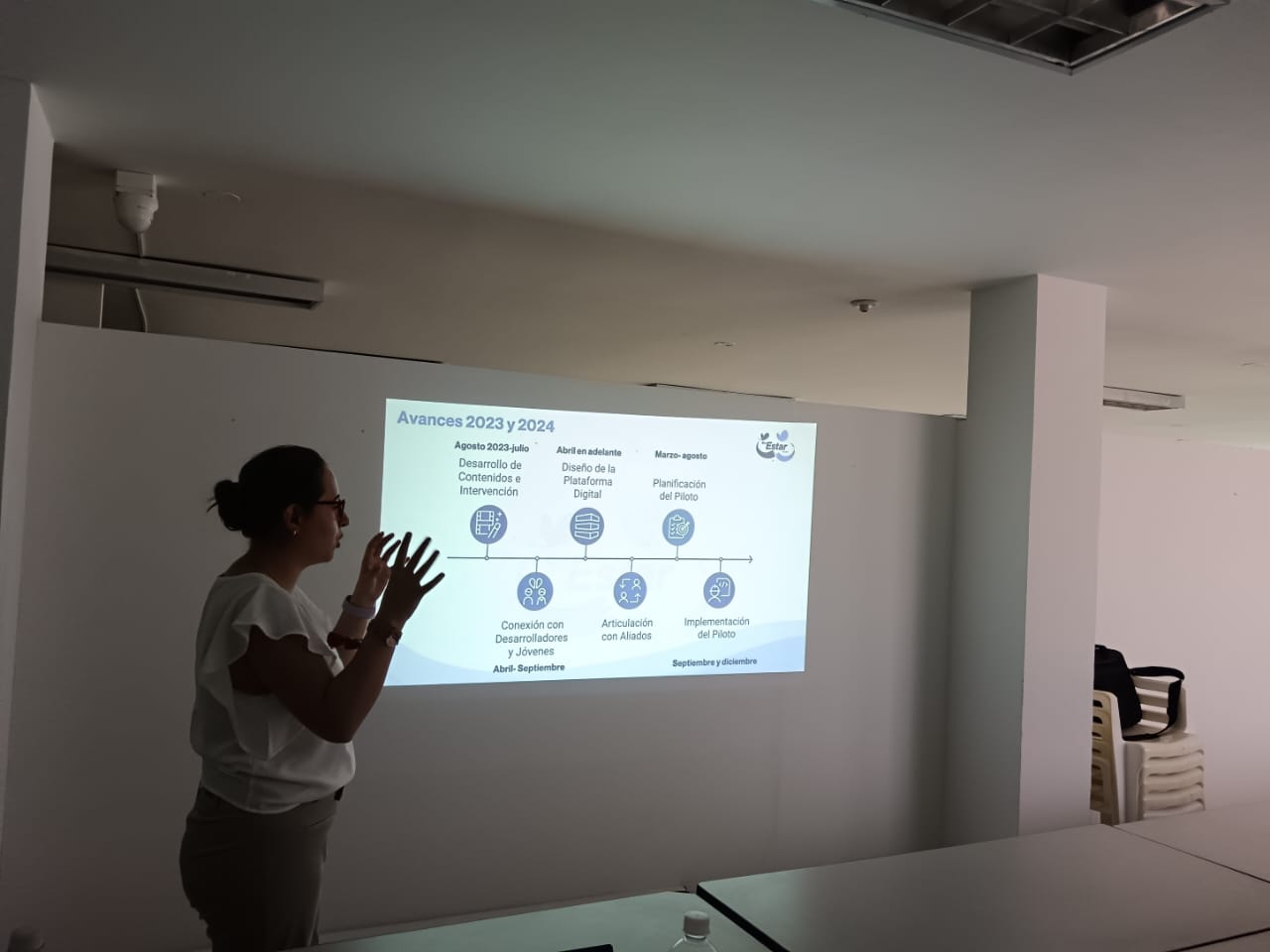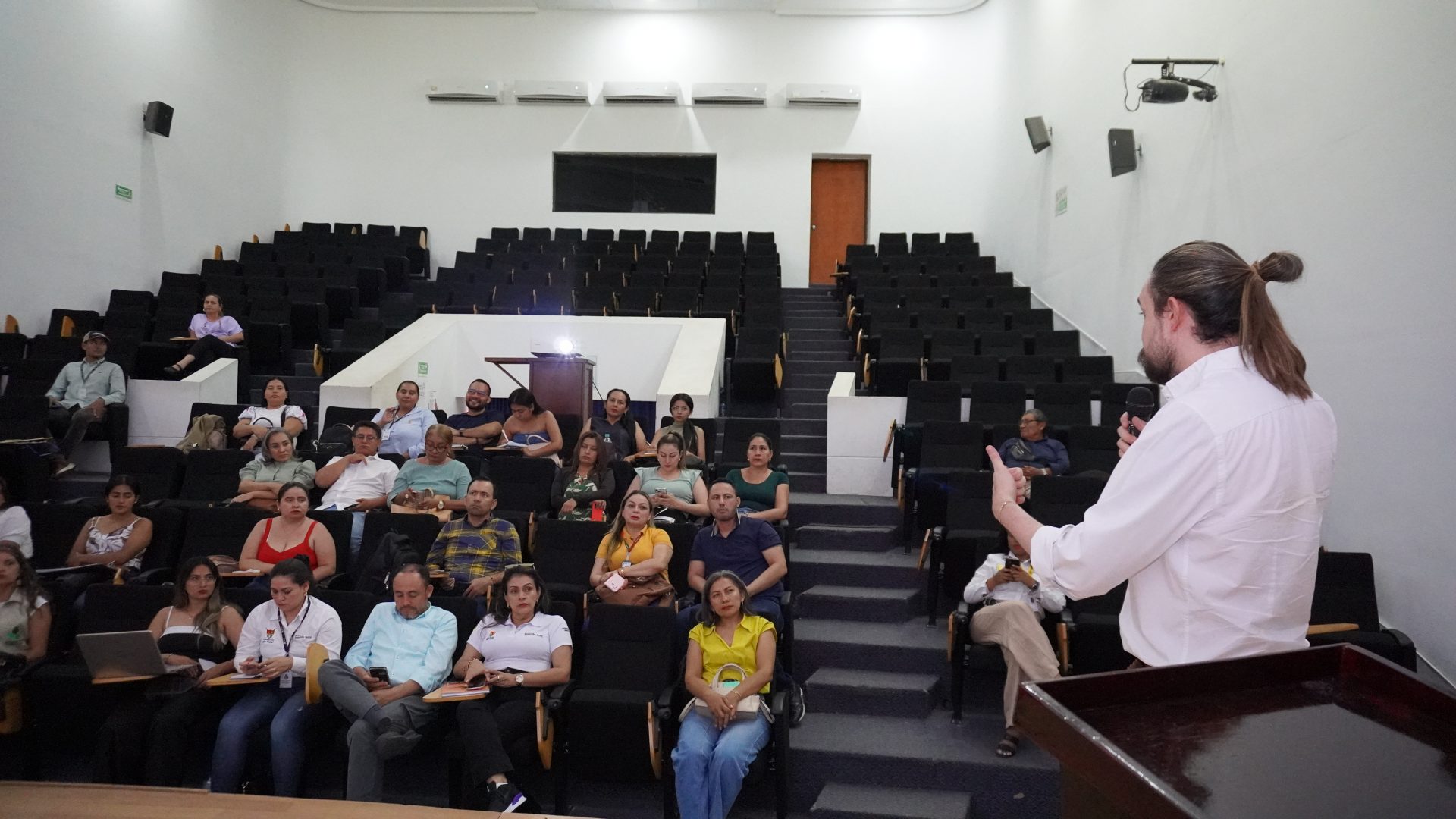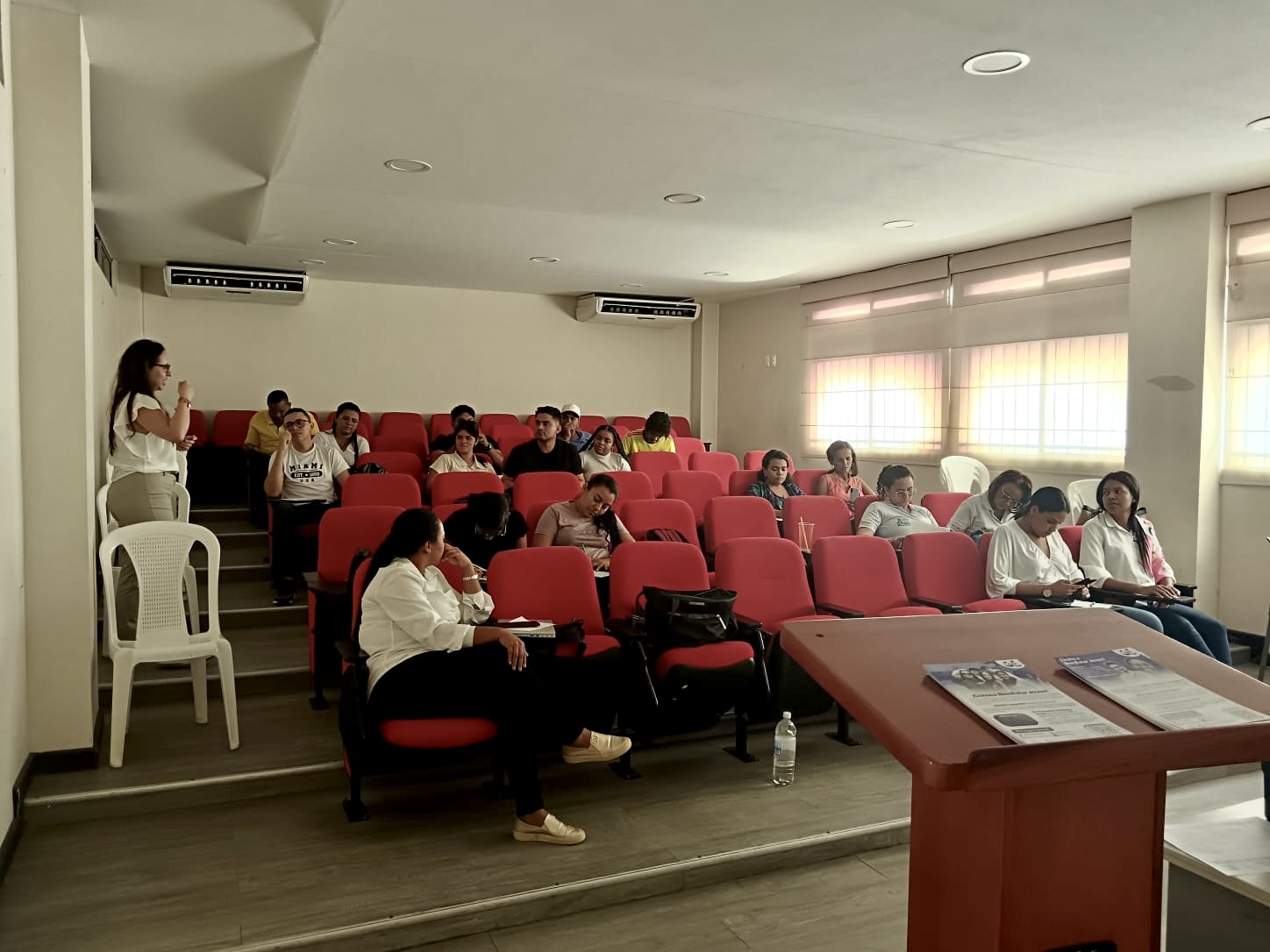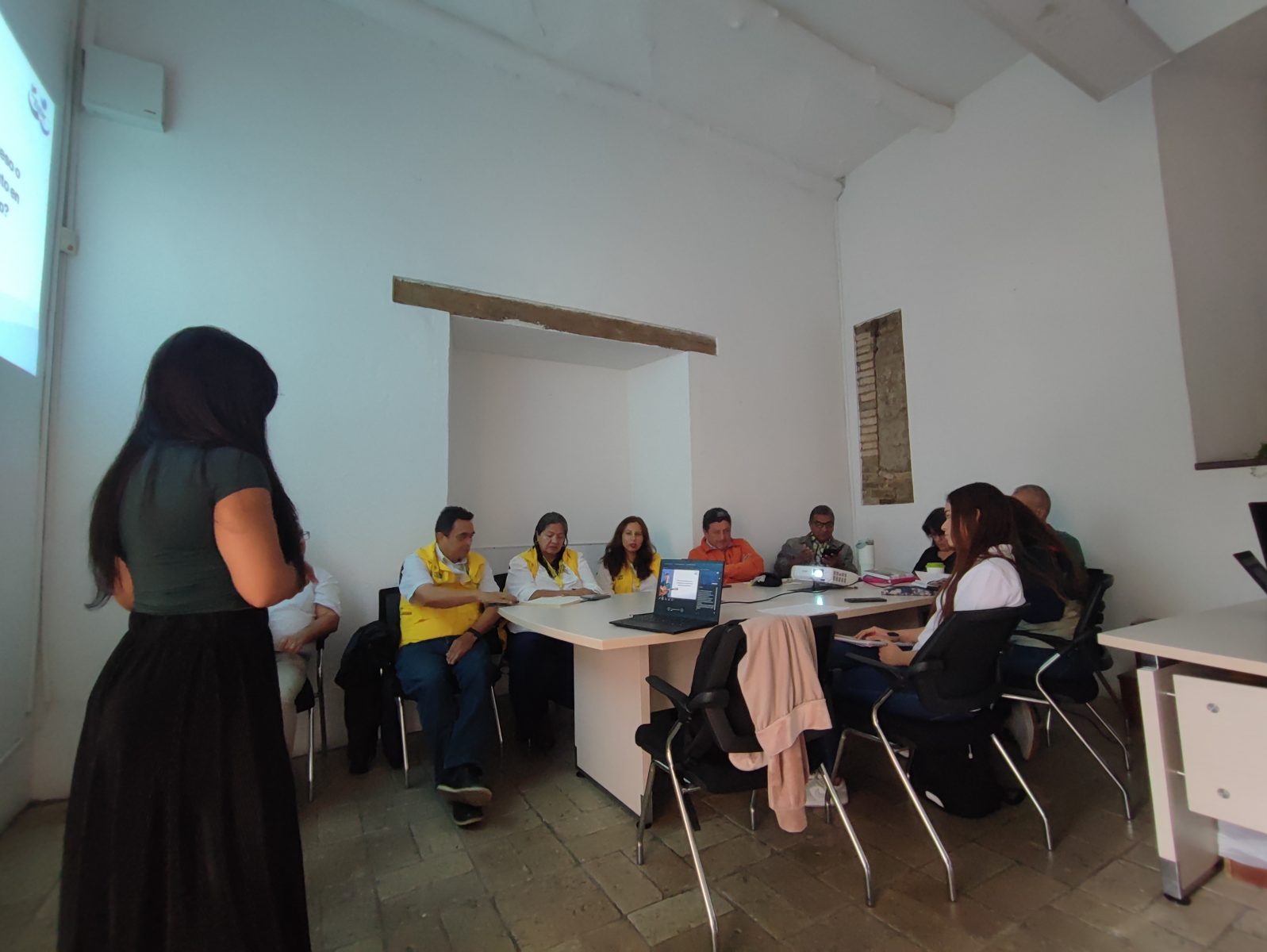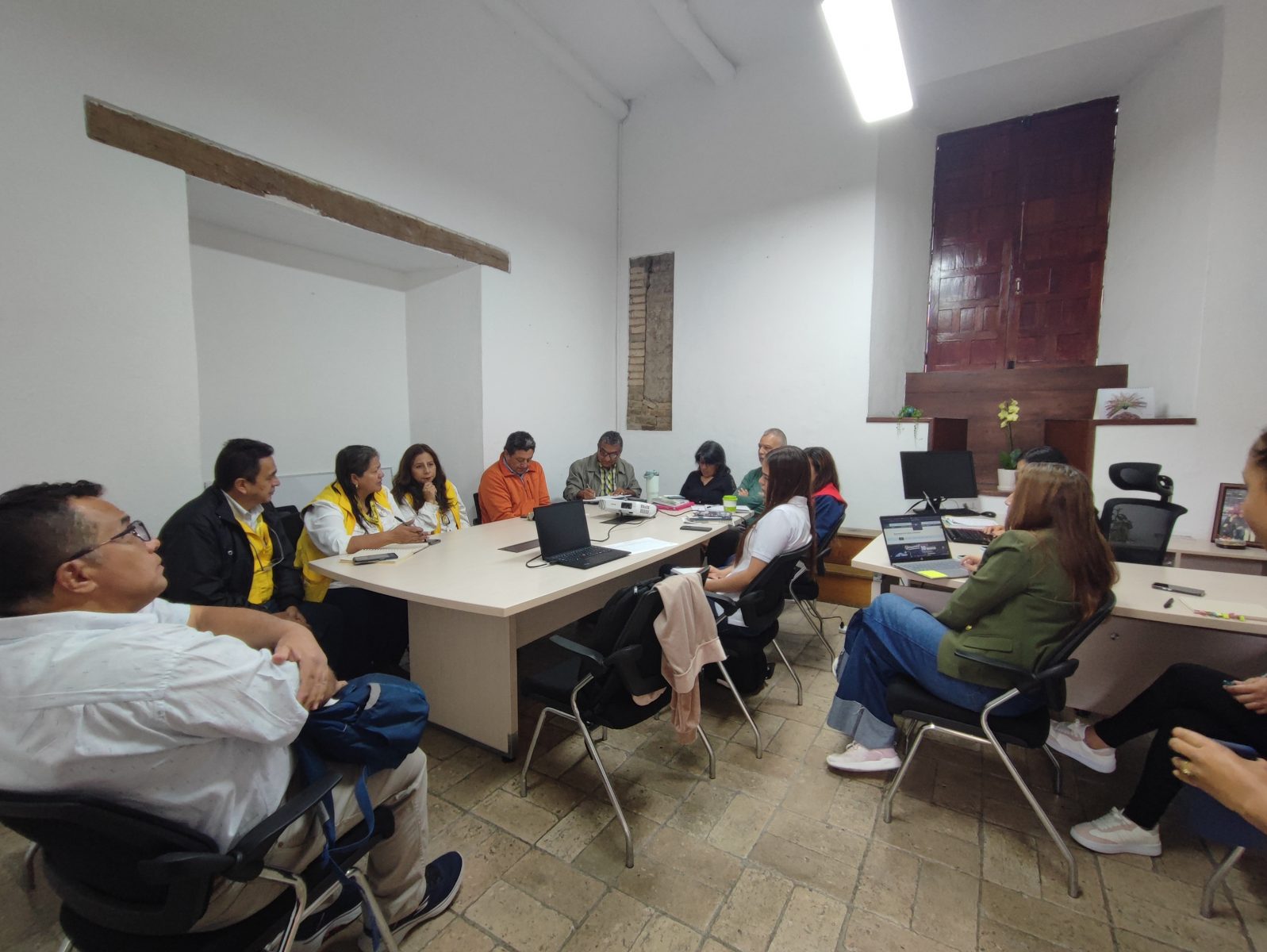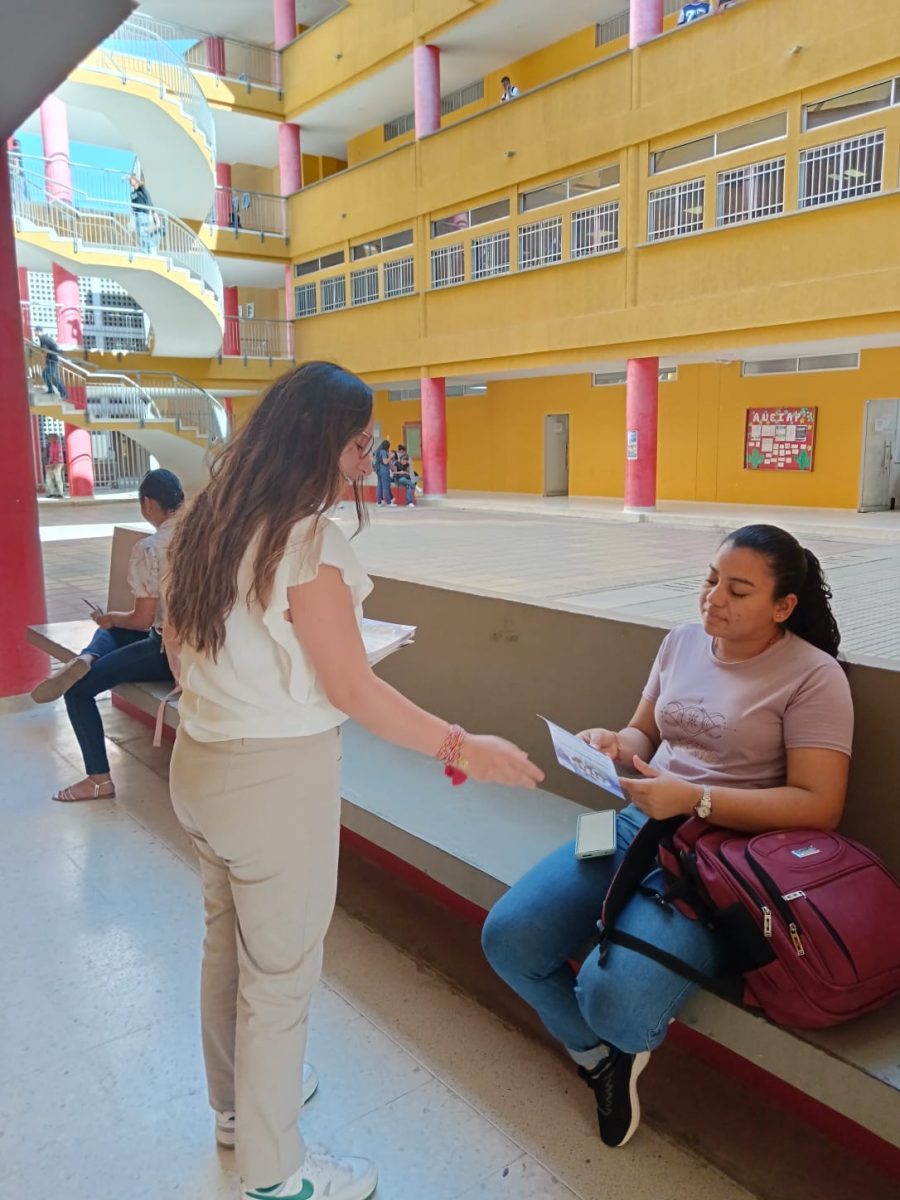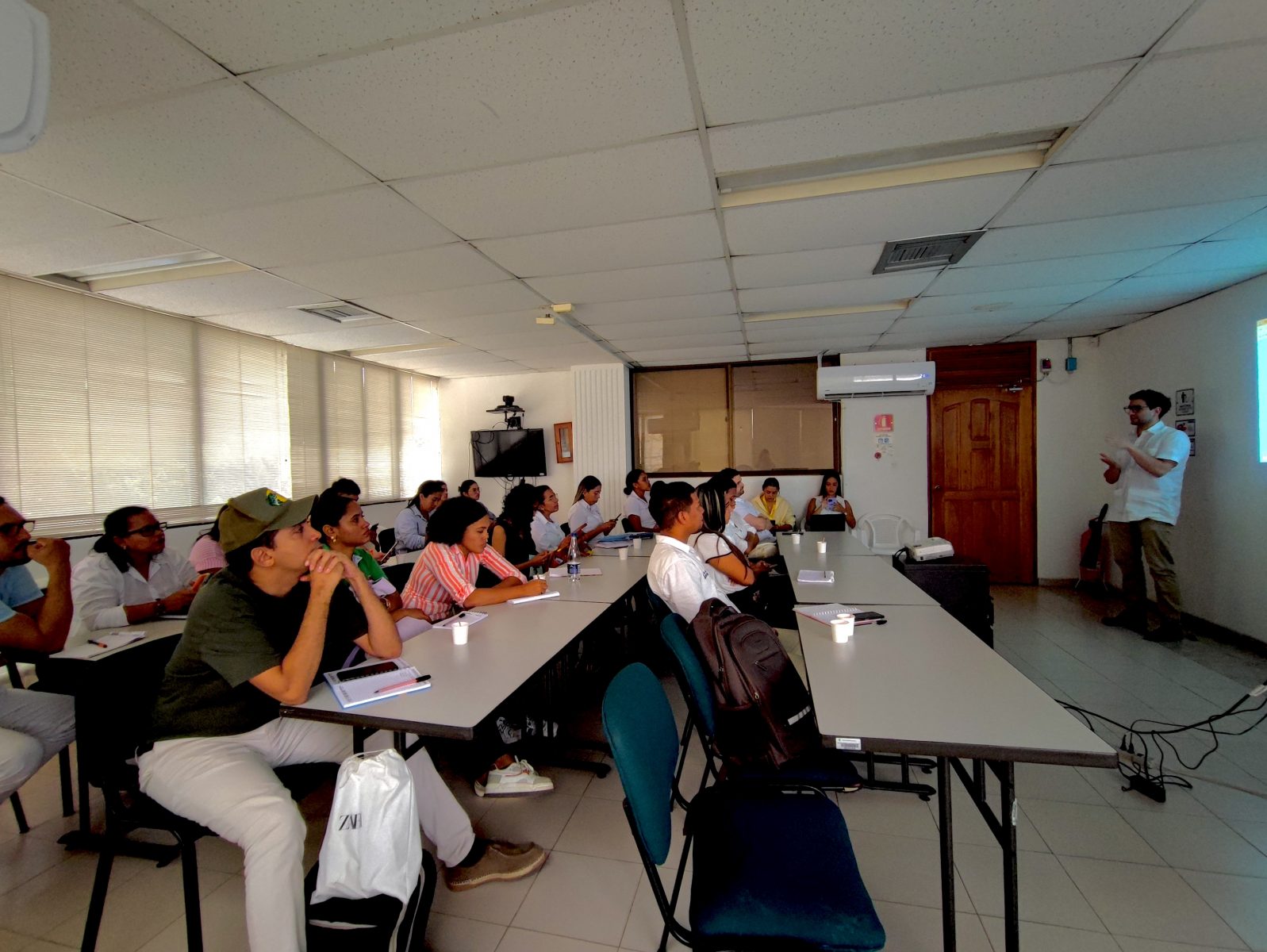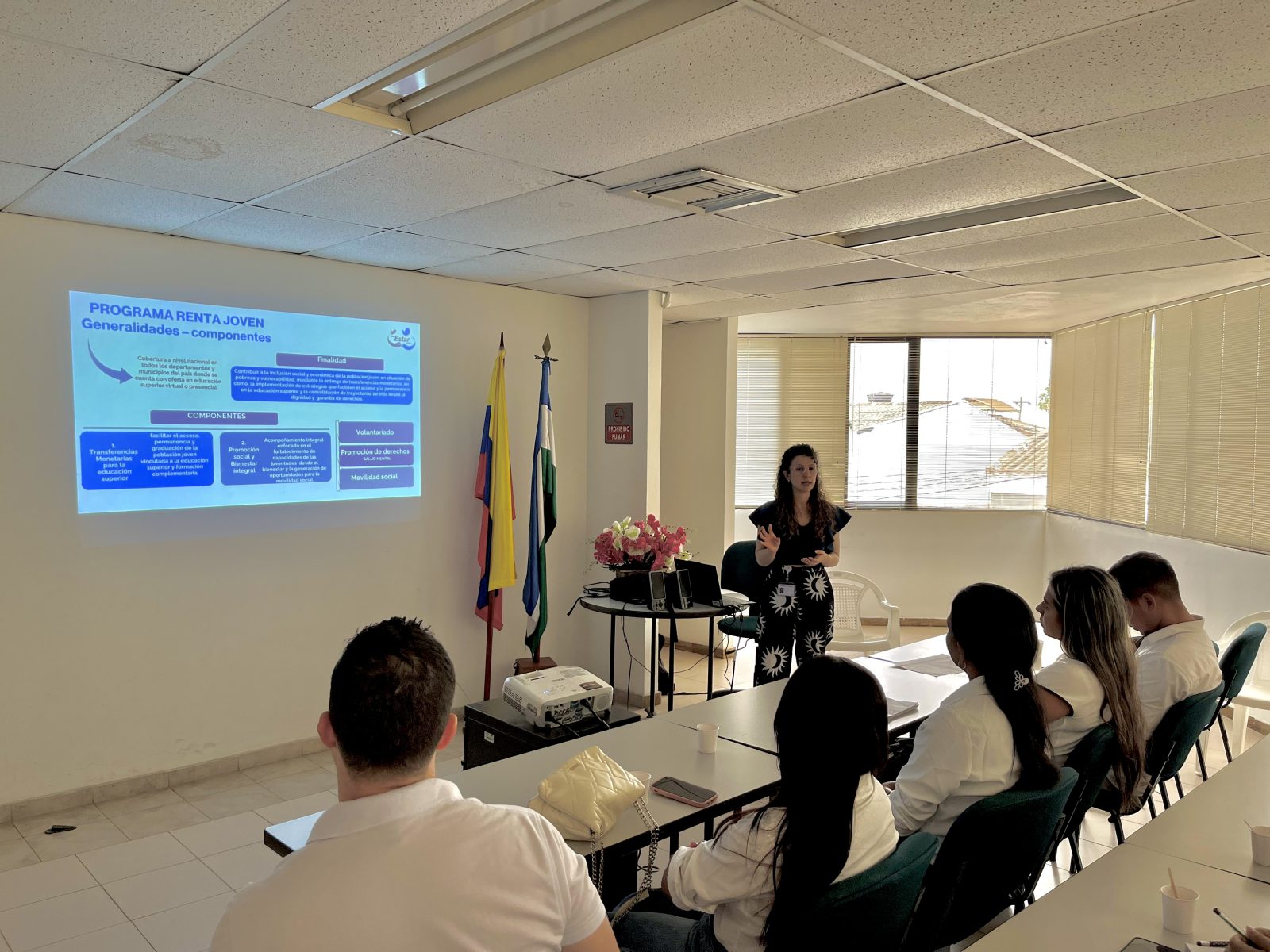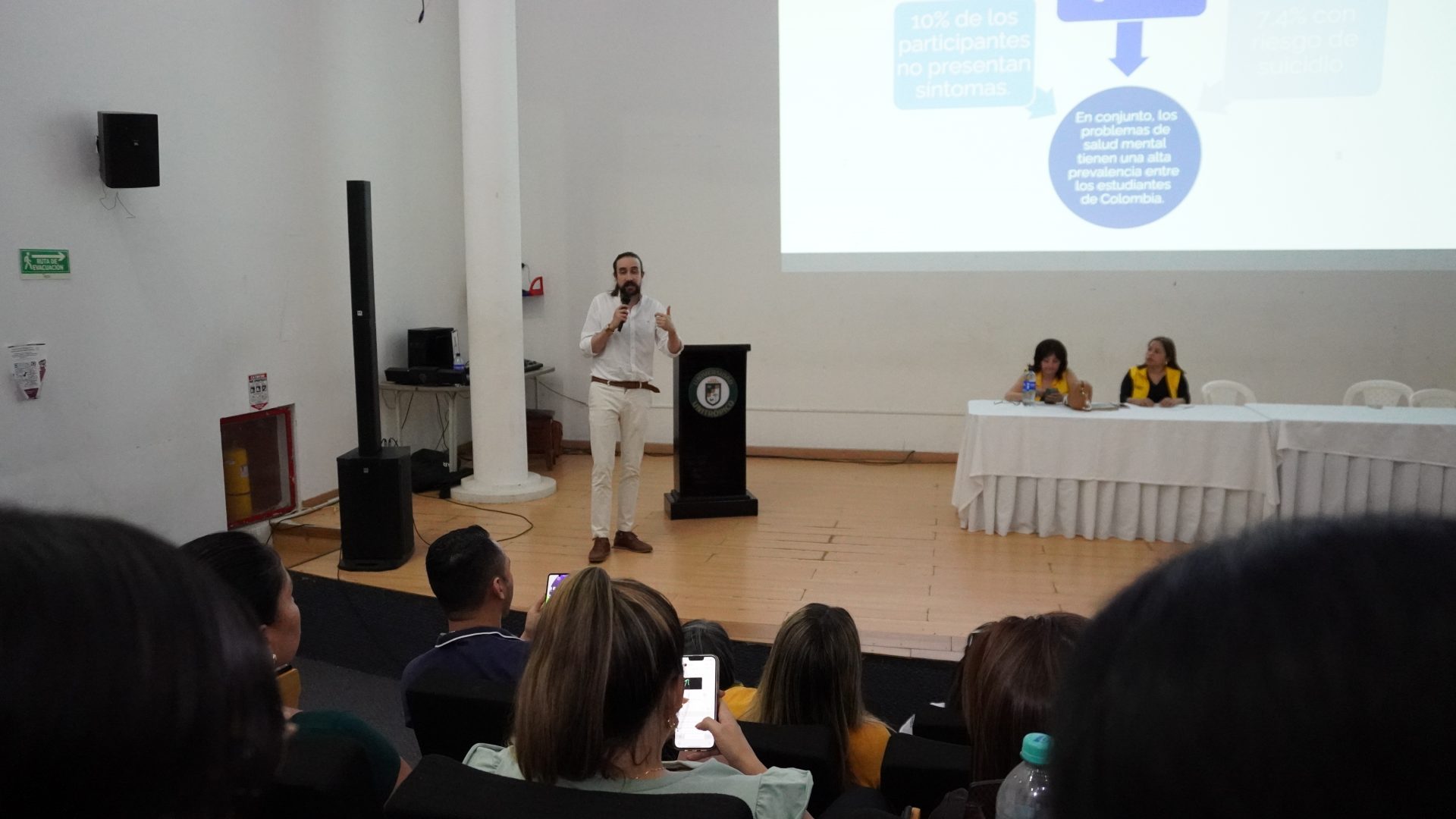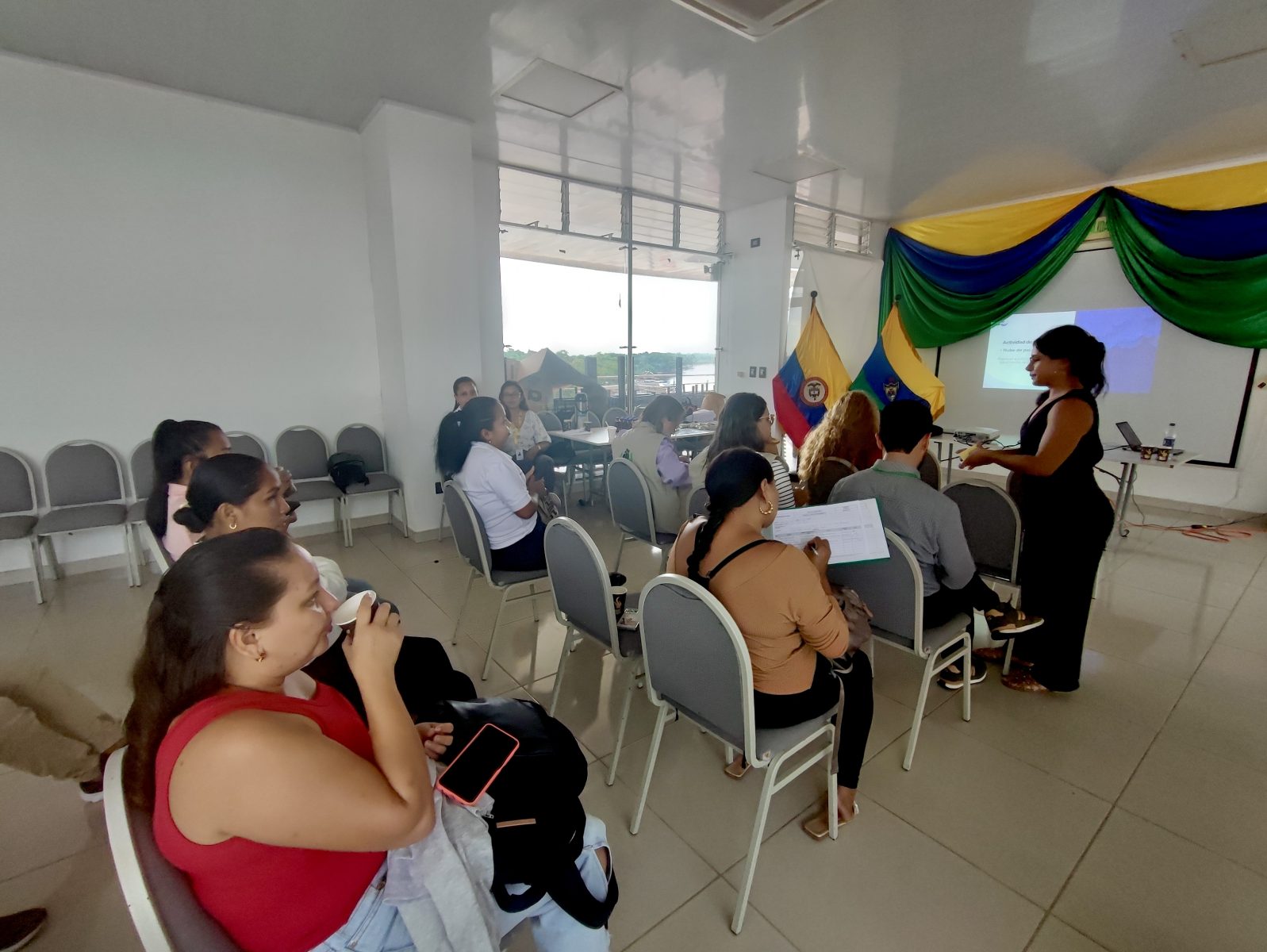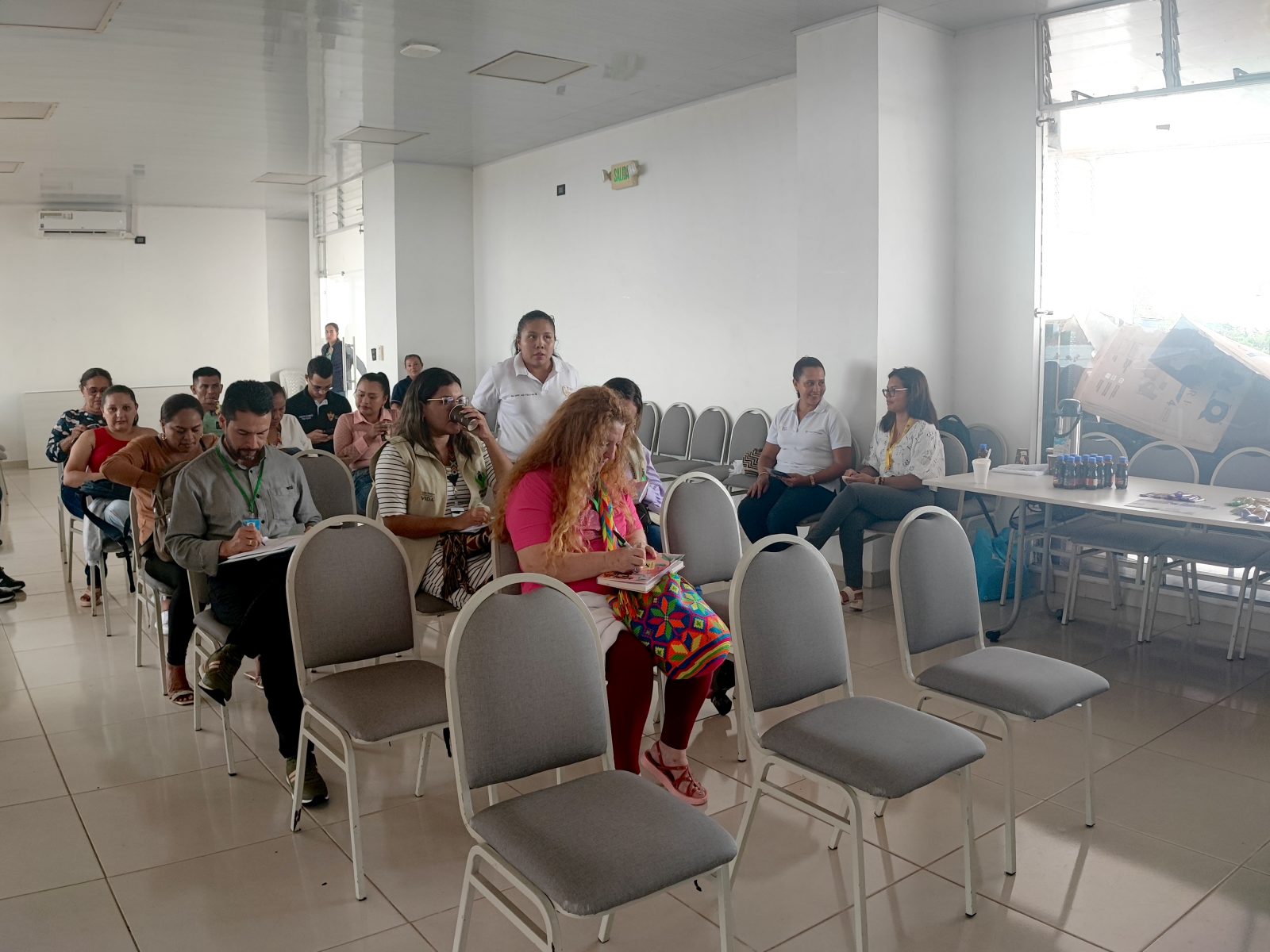¿Quiénes somos?
El proyecto está conformado por un equipo de trabajo transdisciplinario e intersectorial, con el fin de brindar una intervención que integra diferentes áreas como desarrollo social y económico, trabajo social, salud pública, política pública, investigación académica, psicología y psiquiatría. Esta articulación permite abordar de manera amplia y rigurosa los desafíos en salud mental de jóvenes en situación de vulnerabilidad.

Científico social experto en desigualdades en salud y políticas públicas.
Especialista en evaluación de impacto de programas sociales.
Lidera el enfoque científico y metodológico del proyecto
VER MÁS
Mauricio Avendaño es catedrático de la Universidad de Lausana, codirector de la Unidad de Economía y Política de la Salud y cofundador del Centro de Economía, Política y Comportamiento Sanitarios de Lausana en Unisanté. Además, es profesor asociado adjunto en Harvard y profesor visitante en King’s College London. Es miembro electo de la Academia Británica.
Es un científico social cuantitativo cuya investigación se centra en cómo los cambios sociales y las políticas públicas influyen en la salud y en las desigualdades dentro y entre países. Su trabajo interdisciplinar utiliza datos longitudinales, experimentos naturales y ensayos controlados aleatorios para analizar el impacto de la educación, las pensiones, los cuidados de larga duración, el seguro de salud, la pobreza, el empleo y la planificación urbana sobre la salud.
Antes de incorporarse a Lausana, fue catedrático de Política Pública y Salud Global en King’s College London, profesor asociado de investigación en London School of Economics, profesor adjunto en la Universidad Erasmus de Rotterdam y becario posdoctoral David Bell en Harvard.
Cuenta con más de 140 publicaciones científicas y ha recibido financiación de entidades como el Swiss National Science Foundation (SNSF), el European Research Council (ERC), los National Institutes of Health (NIH) y el Wellcome Trust. Ha sido reconocido con múltiples premios a la excelencia académica, entre ellos una Starting Grant del ERC.
En el proyecto BienEstar Joven, lidera el diseño metodológico, la evaluación de impacto y el rigor científico general del estudio, con el objetivo de generar evidencia sólida que fortalezca políticas públicas dirigidas a jóvenes y reduzca desigualdades en salud mental.
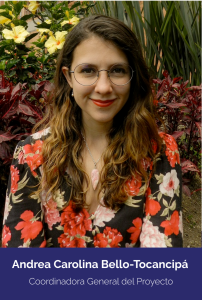
Psicóloga especializada en gestión de proyectos de salud mental.
Experta en intervenciones digitales y trabajo con jóvenes.
Coordina la implementación integral del proyecto.
VER MÁS
Andrea Carolina Bello-Tocancipá es psicóloga de la Universidad de los Andes, graduada con distinción Cum Laude, con más de seis años de experiencia en coordinación de proyectos, investigación académica y gestión de proyectos con impacto social. Está especializada en Gestión de Proyectos y en el desarrollo de intervenciones en salud mental.
Ha trabajado en proyectos de Investigación y Desarrollo (I+D) enfocados en salud mental de la población infantil y juvenil, así como violencia sociopolítica y justicia transicional. En estos ha apoyado en el diseño, implementación y evaluación de intervenciones digitales en salud mental. Su experiencia incluye el trabajo con víctimas del conflicto armado en Colombia y el uso de metodologías participativas.
Como Coordinadora General del proyecto, supervisa el avance de todas las fases del estudio, coordina equipos interdisciplinarios e internacionales y lidera la implementación de la intervención en salud mental.
Su motivación se centra en cerrar brechas de acceso a servicios de salud mental a través de soluciones accesibles, sostenibles y escalables, con especial énfasis en el bienestar y las trayectorias de vida de los jóvenes.

Economista especializado en economía de la salud.
Experto en investigación experimental y políticas públicas.
Apoya el análisis y la evaluación de impacto del proyecto
VER MÁS
Armando Meier es catedrático de Economía en la Universidad de Basilea. Se doctoró en Economía en esta misma universidad, recibiendo el premio de la facultad a la mejor tesis, tras estancias de investigación en la Universidad de Columbia, la Universidad de Chicago y la Universidad de Stanford.
Posteriormente, fue Investigador Principal en la Universidad de Chicago e Investigador Senior en la Universidad de Lausana, antes de regresar a Basilea. Actualmente es también Senior Visiting Fellow en la London School of Economics.
Su investigación y docencia se centran en la economía de la salud, con fuertes vínculos con la economía conductual, pública y laboral. Sus trabajos han sido publicados en revistas científicas de alto impacto, como Nature y Science.
En el proyecto BienEstar Joven, contribuye al diseño analítico y a la interpretación de los resultados de la evaluación de impacto, aportando una mirada rigurosa sobre la efectividad de la intervención.

Psiquiatra con experiencia en salud poblacional.
Lidera el diseño de la intervención en salud mental.
Apoya la ejecución administrativa del proyecto.
VER MÁS
Martha Escobar Lux es directora de Salud Poblacional de la Fundación Santa Fe de Bogotá y psiquiatra del Departamento de Salud Mental del Hospital Fundación Santa Fe de Bogotá. Es profesora clínica de la Facultad de Medicina de la Universidad de los Andes.
Dentro del proyecto, forma parte del equipo de investigación colombiano y se enfoca principalmente en el desarrollo de la intervención en salud mental y en el acompañamiento a la ejecución administrativa del proyecto.
Su motivación es integrar la salud mental en programas sociales de gran escala, con énfasis en poblaciones juveniles vulnerables.
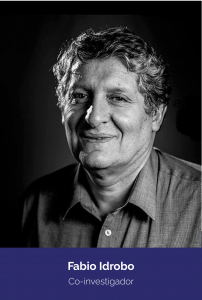
Investigador en salud mental y conflicto armado.
Experto en estudios con poblaciones desplazadas.
Aporta el enfoque epidemiológico del proyecto.
VER MÁS
Fabio Idrobo dirige proyectos de investigación financiados orientados a documentar necesidades en salud mental de poblaciones que viven en contextos de conflicto armado y violencia prolongada.
Ha liderado estudios longitudinales a nivel nacional con poblaciones desplazadas, incluidos migrantes venezolanos, y trabaja en la evaluación de la prevalencia de trastornos mentales comunes como depresión, ansiedad y estrés postraumático.
Ha sido asesor académico del Ministerio de Salud y Protección Social y es investigador asociado del Departamento de Salud Poblacional de la Fundación Santa Fe de Bogotá. También es profesor adjunto en la Universidad de los Andes y en la Universidad de Boston.
En el proyecto, aporta su experiencia en investigación aplicada y evaluación de programas psicosociales en contextos de alta vulnerabilidad.
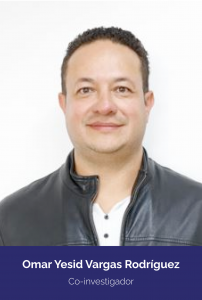
Trabajador social con amplia experiencia en políticas sociales.
Lidera estrategias de bienestar juvenil.
Aporta la visión institucional de Renta Joven.
VER MÁS
Omar Vargas es trabajador social de la Universidad Nacional de Colombia y especialista en Gerencia Social. Cuenta con más de 24 años de experiencia en el sector público.
Actualmente se desempeña como profesional especializado del Departamento Administrativo para la Prosperidad Social en el Programa Renta Joven, donde lidera estrategias de promoción social y bienestar integral.
Su experiencia incluye la coordinación de programas sociales y comunitarios orientados a mejorar las condiciones de vida de poblaciones vulnerables en Colombia.

Economista especializada en evaluación de impacto.
Experta en diseño de encuestas y análisis de datos.
Contribuye a la medición de resultados del proyecto.
VER MÁS
Nathalie Monnet trabaja como investigadora en el Centro Universitario de Atención Primaria y Salud Pública de Lausana (Unisanté) y en el Centro de Comportamiento y Política Económica Sanitaria de Lausana (LCHE-UNIL).
Es economista y doctora por el Instituto Universitario de Altos Estudios Internacionales y del Desarrollo de Ginebra. Su trabajo se enfoca en el desarrollo de cuestionarios de encuesta y en la evaluación del impacto de intervenciones sociales.
Dentro del proyecto “Fortalecimiento de la salud mental y el capital humano en un programa social para jóvenes vulnerables en Colombia”, forma parte del equipo de investigación suizo y se centra principalmente en la medición de resultados y el análisis de datos.
Su motivación es contribuir a evaluaciones rigurosas que permitan mejorar la calidad y efectividad de los programas sociales dirigidos a jóvenes.
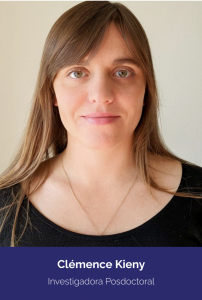
Economista especializada en salud mental y educación.
Experta en ensayos controlados aleatorios.
Apoya la evaluación de impacto del proyecto.
VER MÁS
Clémence Kieny es economista y doctora por la Universidad de Lausana. Actualmente trabaja como investigadora en el Centro Universitario de Atención Primaria y Salud Pública de Lausana (Unisanté).
Su investigación se sitúa en la intersección entre políticas educativas, salud cognitiva, envejecimiento y salud mental, con un enfoque metodológico en ensayos controlados aleatorios.
Como parte del equipo de investigación suizo, contribuye a la evaluación de impacto del proyecto BienEstar Joven, apoyando el análisis de los efectos de la intervención en la salud mental y el bienestar de los jóvenes.
Su interés se centra en generar evidencia que fortalezca políticas públicas basadas en datos.

Psicóloga clínica con experiencia en salud mental comunitaria e institucional.
Implementa lineamientos, rutas de atención y estrategias basadas en evidencia.
Apoya la red latinoamericana del proyecto.
VER MÁS
Luisa Fernanda Martínez Villa es psicóloga, graduada con distinción Cum Laude, y especialista en Psicología Clínica de la Niñez y la Adolescencia de la Universidad de La Sabana. Cuenta con formación y experiencia en atención psicosocial, identificación, caracterización y evaluación del riesgo individual y colectivo, así como en la aplicación de terapias basadas en evidencia. Posee formación complementaria en diversas áreas, destacándose el entrenamiento en Dialectical Behavior Therapy (DBT) de la Pontificia Universidad Javeriana y su formación avanzada en DBT a través del Behavioral Tech Institute (BTECH) y DBT Iberoamérica.
Ha trabajado en articulación con la Secretaría Distrital de Salud de Bogotá en procesos de asistencia técnica, implementación de lineamientos y fortalecimiento de rutas de atención en conducta suicida, violencias y consumo de sustancias psicoactivas, así como en el abordaje comunitario del riesgo en salud mental.
Cuenta con certificación en Prevención de la Autolesión y el Suicidio y Primeros Auxilios Psicológicos, además de experiencia en formulación de casos, diseño de estrategias de intervención en contextos hospitalarios y comunitarios, e investigación académica. Ha participado en publicaciones especializadas y orienta su ejercicio profesional desde un enfoque clínico, comunitario y de derechos, con énfasis en el fortalecimiento de intervenciones en salud mental con impacto social.
Inicialmente se desempeñó como psicóloga en el abordaje directo en salud mental con la población participante del proyecto y actualmente lidera la coordinación del mismo desde Prosperidad Social, articulando la participación de los jóvenes y la relación con actores interinstitucionales clave.
Codirige el paquete de trabajo 4, enfocado en la creación de una red internacional de trabajo latinoamericana, y tiene un interés particular en experiencias infantiles adversas y factores de protección en poblaciones vulnerables.

Trabajadora social con experiencia en gestión pública.
Supervisa el convenio del proyecto en Prosperidad Social.
Aporta al bienestar integral y la salud mental juvenil.
VER MÁS
Nidia Yisela Morales Pineda es trabajadora social de la Universidad Nacional de Colombia y especialista en Gobierno y Gestión Pública. Su trayectoria profesional se ha desarrollado principalmente en el sector público, con énfasis en la gestión y seguimiento de programas sociales dirigidos a poblaciones vulnerables.
Ha trabajado con el Distrito de Bogotá en el diseño, apoyo y seguimiento de intervenciones orientadas a la atención de víctimas de violencia intrafamiliar y violencia sexual, fortaleciendo procesos de articulación institucional y acompañamiento social.
Actualmente se desempeña en el Departamento Administrativo para la Prosperidad Social, donde actúa como supervisora del convenio del proyecto en el marco del programa Renta Joven. Desde este rol, es responsable de los procesos de afiliación al programa y contribuye al componente de Promoción Social y Bienestar Integral, apoyando la implementación de la estrategia de salud mental dirigida a jóvenes.
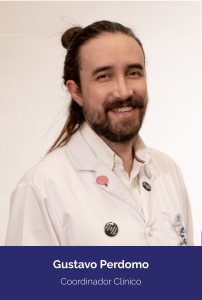
Psiquiatra con experiencia en salud mental comunitaria.
Lidera la atención clínica y la formación de pares.
Diseña rutas de atención para jóvenes en riesgo.
VER MÁS
Gustavo Perdomo es médico de la Universidad Nacional de Colombia y especialista en Psiquiatría de la Universidad Militar Nueva Granada. Actualmente cursa una Maestría en Investigación Clínica en un programa conjunto entre la Universidad de Harvard y la Universidad de Dresden, así como una Maestría en Bioética y Ética de la Investigación en la Universidad de los Andes, con el apoyo de los NIH.
Trabaja como psiquiatra en el Hospital Universitario Fundación Santa Fe de Bogotá y es profesor en la Universidad de los Andes, donde ha participado en investigaciones en salud pública, incluyendo estudios sobre el uso de cigarrillos electrónicos.
En el proyecto, supervisa a los psicólogos clínicos que atienden a jóvenes de alto riesgo, apoya a los pares y lidera el diseño de las rutas de atención y del programa de formación de pares, con el objetivo de fortalecer el apoyo comunitario en salud mental.
Es miembro fundador de la Red Colombiana de Profesionales de la Salud Trans y participa activamente en la creación de la Clínica de Género del hospital, siendo un defensor de los derechos en salud.

Psicóloga clínica y académica internacional.
Experta en ansiedad y terapia cognitivo-conductual.
Asesora el enfoque clínico del proyecto.
VER MÁS
Naomi Koerner es profesora asociada del Departamento de Psicología de la Universidad Metropolitana de Toronto y profesora adjunta de la Facultad de Medicina de la Universidad de los Andes. Es psicóloga clínica con amplia experiencia en terapia cognitivo-conductual.
Durante más de 15 años, ha investigado la ansiedad, los trastornos relacionados y las respuestas psicológicas a la incertidumbre. Ha promovido activamente la ciencia psicológica para abordar desafíos globales.
Ha sido miembro de juntas directivas de la Sociedad Interamericana de Psicología y del Consejo Internacional de Psicólogos. Mantiene una relación cercana con América Latina, donde ha enseñado e impartido formación clínica en español.
Previamente colaboró con miembros del equipo en el diseño de un programa de bienestar cognitivo-conductual para jóvenes, antecedente directo del proyecto BienEstar Joven.
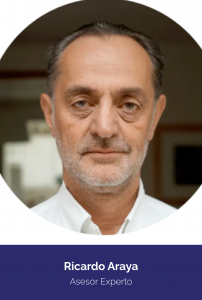
Referente internacional en salud mental global.
Experto en intervenciones accesibles y escalables.
Asesora la sostenibilidad del modelo del proyec.
¿Cómo lo hacemos?
La investigación se fundamenta en cuatro paquetes de trabajo para desarrollar, implementar, evaluar y escalar la intervención. Cada uno de ellos está alineado con un objetivo principal del proyecto. Estos paquetes son:
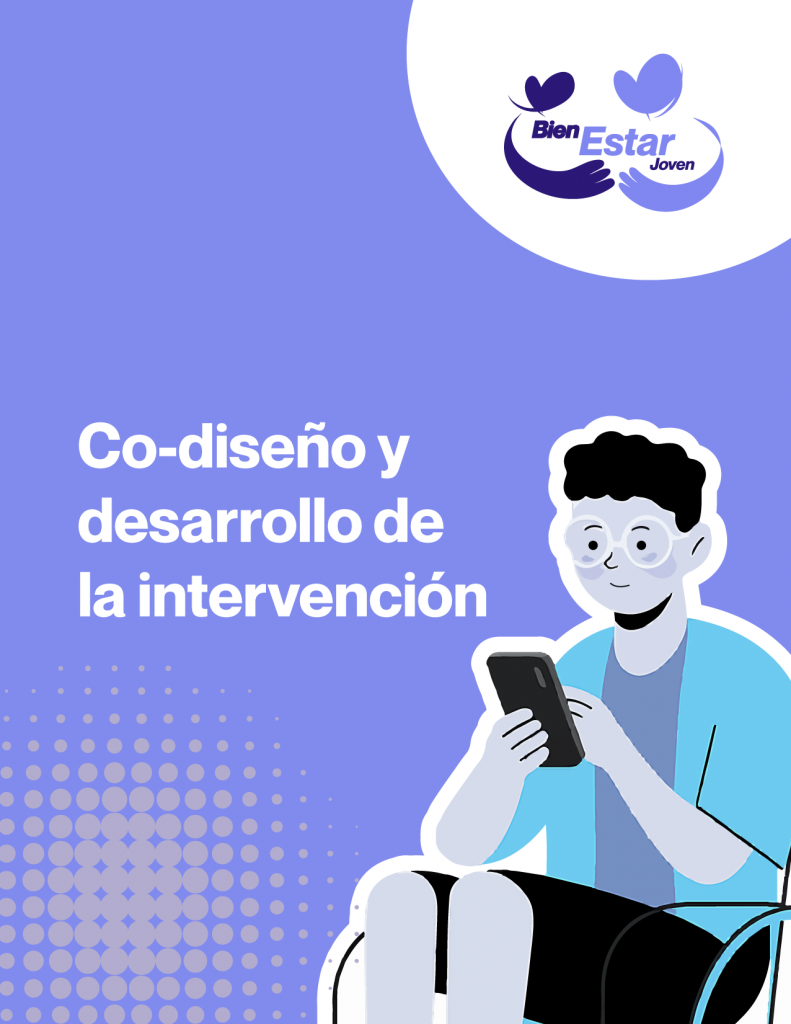
La intervención se basa en estrategias cognitivo-conductuales con un enfoque transdiagnóstico y escalonado para abordar síntomas de depresión, ansiedad y estrés postraumático. La plataforma se co-diseñó junto con los jóvenes, incorporando sus experiencias y recomendaciones para crear una intervención culturalmente apropiada y fácilmente adaptable.

La intervención se basa en estrategias cognitivo-conductuales con un enfoque transdiagnóstico y escalonado para abordar síntomas de depresión, ansiedad y estrés postraumático. La plataforma se co-diseñó junto con los jóvenes, incorporando sus experiencias A través de un estudio clínico aleatorizado (ECA) de efectividad-implementación híbrida tipo 2 se busca evaluar y generar evidencia acerca de los mecanismos a través de los cuales las intervenciones digitales en salud mental resultan en la reducción de los síntomas de depresión, ansiedad y TEPT; así como los efectos en el capital humano y el bienestar a largo plazo.

A través de un análisis socioeconómico y de costo-efectividad se evalúa la factibilidad y aceptabilidad de desarrollar e implementar una aplicación digital de salud mental. Además, se examina su rentabilidad y el retorno socioeconómico de la inversión.

A través de la creación de un grupo de trabajo en Políticas de América Latina, se busca indagar cómo la evidencia generada en Colombia puede informar políticas y programas en otros países de América Latina, explorando la integración de intervenciones digitales de salud mental en programas sociales existentes para jóvenes en Guatemala, Perú, Paraguay, Chile y México
Conoce más acerca del proyecto
Galería de fotos
Nuestro impacto
Si desea conocer más sobre el proyecto, explorar oportunidades de cooperación o intercambiar experiencias en salud mental y juventud, lo invitamos a contactarnos. Complete el formulario y nuestro equipo responderá a la brevedad para continuar construyendo conocimiento y alianzas.
Todas las fotos de los participantes del programa the Renta Joven, son cortesía de Prosperidad Social
© 2026 Youth Well-Being Project

